|
A life of sacrifice for others This year we will be celebrating 100 years of Mercy education in our parish. In Kilbirnie there was a large wooden building which stood on the hill overlooking the village (today the site of St Catherine’s College Coolock block), which Catherine Bourke, the wife of Mr M F Bourke had acquired in 1908. She had it transferred in 1917 with its mortgages ‘in natural love and affection’ to her niece Agnes Bourke, called in religion Sister M Vincent, for use as a convent. The new convent was named St Catherine’s and the first community to live there comprised Sisters M Chanel Burton, Evangelist Herring, Imelda Aisher, Gertrude O’Flaherty and Gerald Byrne. Early last century our parish, like the rest of New Zealand, suffered under a great influenza epidemic in which many died. During the epidemic the schools were closed and the sisters nursed the sick in their homes and in temporary hospitals. Sr M Chanel was nursing in the old St Patrick’s College temporary hospital in Cambridge Terrace. She walked each day from Kilbirnie to Te Aro and back again. One day she called in to the convent at Newtown on her way home to get a drink. The Sisters there besieged her to stay that night as she did not look well but she insisted on going back to Kilbirnie as she needed medicine she had there for her patients the next day. On arrival at Kilbirnie she went upstairs to her room. At tea time someone went up to get her and found she herself had died from the influenza. Today, in the foyer of the Te Atawhai block at St Catherine’s College there is a foundation stone which was laid in 1920 on the occasion of the opening of the first purpose built school on the site. Translated the Inscription reads: To the greater glory of God and the honour of the Mother of God. This stone is placed in memory of Sister M. Chanel, professed religious of the Congregation of Our Lady of Mercy. She was notable for her faith, her prayerfulness, her love of God, and her love of the poor. She died the day before 1 December, 30 November 1918. She was 49 years old. Pray for her. A new year thought: At the end of each day, we can stop for a few minutes to remember the good times and the challenges, the things that went well and those that went wrong. In this way, before God and before ourselves, we can express our gratitude, our regrets and our trust. This means praying in life, with life and about life, and it will surely help you to recognize the great things that the Lord is doing for each of you. As Saint Augustine said, we can find God in the vast fields of our memory. – a quote from Pope Francis, verified by Missionz. Don’t believe everything on Facebook Just in case you were wondering, there is some pretty crazy stuff on Facebook. Even if it comes with a really nice smiley photo. What you are reading isn’t necessarily fact or even close. The new year was full of all sorts of weird stuff like this one with a photo of the Pope suggesting that we don’t need to worry about believing in God anymore. These sorts of posts will usually come through to you from a friend forwarding them from a friend. Who knows were some of them started out. Referring the post to the Apostolic Nuncio, he has commented as follows: Many thanks for your message. At present all of us have to learn new skills in order to distinguish fake news from authentic news. Unfortunately, that does not only concern politics, but also the Church. The first step is to check news that sound strange, especially when there is a quotation without indication of its source. This one does not show its source, and you have done the right thing: to check. Congratulations! I can assure you that the quotation you have sent me is a fake. Of course, as a fabrication it is not stupid, because it gives the impression not to be as far from the truth as in reality it IS. For example, the sentence “for many, nature can be a church”, mirrors the subjective feelings of many people. However, nature can NOT be a church. A building and the Church itself can never be replaced by nature, as some people might feel. A church, and the Church, are what they are: a (sometimes steamed up) mirror of Christ. Just as an illustration of the kind of campaign going on against the Pope, I quote (no fake!) from the following article: Marco Politi, “Choppy waters for the ship of St Peter: Francis, a progress report Premium”, in: The Tablet, 03 January 2018: “Approval ratings for the Argentinian pontiff continue to be very high, and not only among Catholics. Far beyond confessional boundaries, he is recognised as a moral authority and geopolitical leader. His stand on migration, refugees, on the ever-growing inequality between rich and poor, on sex trafficking and the “new slavery” that exploits millions of workers, and his repeated emphasis on the tight link between environmental deterioration and growing social injustice, has made a broad impact on the public. Inside the Church, meanwhile, a sort of civil war is going on. Opponents say Francis is a communist, a feminist, a populist, or is in such thrall to the spirit of the age that he has dramatically squeezed the sacred from the papacy, betraying tradition and divine law. It would be a mistake to consider the Roman Curia the main or only centre of opposition. For sure, the curial apparatus is partially frustrated and dismayed, since it feels that under Francis it is losing its almost military aura as Catholicism’s chief of staff. But broad resistance to Francis has roots all over the world in the local churches.” If you are left wondering about the authenticity of material that pops up on your Facebook page, a quick way of checking it is to copy and paste a section from it into Google. In the resulting Google search that comes up take particular note of the web-site addresses of the sites displayed. If one of them is an organisation associated with the quote then clicking on the search link will help you to verify authenticity. Here’s your chance to make a difference The Justice Select Committee is now asking for public submissions on David Seymour’s ‘End of Life Choice Bill’. The Bill seeks to legalise euthanasia and assisted suicide (called ‘assisted dying’ in the bill) for people with a terminal illness or a “grievous and irremediable” medical condition. Many of you will have made a submission to the Health Select Committee inquiry about ‘Ending Life in New Zealand’. Because of the overwhelming number of submissions against euthanasia, parliament took notice and your voice made a difference. However, the Justice Select Committee inquiry is different because it is specifically about the Bill. A submission is your chance to have your say on the Bill. Your voice counted at the time of the last round of submissions. Your voice will count again in the new round associated with the Bill. Could you please send an email with you views? It is simple, just follow these steps:
Thank you in advance in taking this important step in protecting the lives of the vulnerable in our community.
1 Comment
CHRISTMAS NOVENA Fr Paul is a precise man. When he writes his homilies he counts the number of words used and measures his delivery time. His homilies are measured to be no longer than ten minutes. Right now he is particularly busy as he prepares for our parish’s Christmas Novena. It is hard to squeeze all that is to be said for each topic into ten minutes. Fr Paul promises simply a taste on each topic. There will be enough on each topic so that everyone gets an experience of the topics as they prepare themselves for this great season. It is hoped that the Novena will provide a common spiritual preparation for Christmas. The Novena will start at 7.00pm at St Patrick’s Church each evening from Friday 15 December to Saturday 23 December. The topics covered will be:
Often when Christmas Day arrives we burst on it in a rush. This year could be different. Here is the opportunity to slow down, to take a breath, to reflect. Here is an opportunity to be truly ready for the birth of Jesus. It has to be said that when we take time to reflect through a Novena there can be things that weigh on our mind. To be ready for the Christmas season it is important that these burdens are wiped away. Reconciliation will be available at each of the nine Novenas. Come Christmas the hope is that whatever this year has been like for you, you can enjoy a very happy Christmas and peaceful new year. CONGRATULATIONS Congratulations to Ana Ffaatoia on completing Seasons for Growth training to support the prison chaplaincy team. Ana lives in Miramar having arrived in Wellington from Auckland two years ago. She is active in Vinnies youth and young adults formation in service, leading activities through the Vinnies Facebook group. Working in prisons helping inmates to centre themselves and prepare to return to the community is a natural extension of this work. Pictured with Ana is Sr Veronica who leads the prison initiative. She is convinced that if we can help inmates with their grief, we can help them to find balance. To join this important mission contact her at vcasey@nzcbc.org.nz . The school year is coming to an end. What’s been happening? The building programme at St Anthony’s is just about complete. In the above picture Principal Jennifer Ioannou cranks up the Pullman S26 Ermator super vacuum to clean away building dust as one of the newly renovated classrooms is finished off prior to students moving back in. The programme has seen all classrooms earthquake strengthened and the senior block renovated to a modern and flexible learning environment. At a cost of $450,000, the programme has been a substantial commitment, funded by the Archdiocese. But, Jennifer is quite clear the buildings are not an end in themselves. One of her main focuses is the students. Now in her third year as principal she says everything that happens in the school must be centered on the goal of helping each student to grow, develop and learn to the best of their ability. Holy Cross School Principal Celeste Hastings has been at the helm for eleven years. She has seen a lot of change over that time. Along with Holy Cross School Board Chair Brendon Baker, she wrote to the parish recently to express her thoughts for the future of the Holy Cross community in the context of the building programme. This is what they wrote: As we understand it there are two main options being considered: 1. A church / sacred space being built on site at Holy Cross School- with consideration being given to a parish office and presbytery. 2. The current church, parish office and presbytery being upgraded. At our meeting we revisited previous discussions regarding the future of Holy Cross Church including the possibility of having the church and school on one site, as is the case for the other two churches and schools that are part of the Holy Trinity Parish- St Anthony’s and St Patrick’s- this too is our strong desire. We would therefore like to record our unanimous support for having Holy Cross Church on the school site so that we could become an integral part of the Holy Trinity Parish enabling us to work together to nurture the faith journey of each of our families and facilitate a reconnection between church and school. Children and young families are the future of our church and we wish to support them to find their place within the church- this we know to be in keeping with the discussions at the recent Synod and, we believe the vision of our Cardinal and Pope. The reality of having a church or sacred space onsite would not only be a visible sign of unity and collaboration but would present a daily ‘invitation’ to our students and their families to be part of this. For many of our pupils, school is their only experience of a faith community; having the church as a physical part of a parish /school complex would add an extra dimension to the worshipping side of the Catholic faith (rituals and traditions). This would help to give the students a more natural experience and a wider view of a 'faith community'. We, as you, are aware of the necessity for change and creative thinking within this period of struggle for the Church given the decreasing number of clergy and those actively involved in church life. We have heard of a successful precedent being set in the Nelson with shared church and school facilities; we are motivated toward such an initiative, to explore possibilities for growing the Church for tomorrow. In 2015 Cardinal John shared a power point presentation about Stewardship and he said when he attended his first Stewardship conference a phrase that really struck him was: “BELONGING DOES NOT COME FROM BELIEVING; BELIEVING COMES FROM BELONGING” - We have a unique opportunity recreate this sense of belonging for our families so we urge you to consider our request with open hearts and minds. Nenah Kelemete is Acting Principal at St Patrick’s School as Vanessa is on maternity leave. In the picture above she holds up her dinner, purchased at the recent ethnic food fair at the school. The food fair was packed with students and their families as they celebrated the great diversity that makes up St Patrick’s School. Congratulations to orgainiser Fiona D’Souza on an awesome occasion.
Nenah says she has loved her short time at the school as the children are amazing. Vanessa and her new baby are going well and Vanessa will be back in term three next year. Meantime, Nenah says she will continue to fill in, enjoying the wonderful school spirit at St Patrick’s. JESUS IS BORN, NOW WE MUST FIND HIM The carol "Oh Come Divine Messiah" has lyrics like this: Oh come divine Messiah, The world in silence waits the day, When hope shall sing of triumph, And sadness flees away Yes, in those days life was very simple as we waited in silence, full of hope that good will soon triumph over evil thereby ridding our lives of sadness. Those words were so meaningful and bring back pleasant memories of Christmas yesteryears. Christmas is a commemoration of God's coming into the world. He came for all of us - believers and non-believers alike. His birth should bring us hope and triumph which will dispel the sadness from our lives. But after years of celebrating Christmas after Christmas many of us are yet to see that triumph in our lives and our hopes may be giving way to despair. Has the Messiah really come? If He has where is He? Why doesn't He bring the triumph that dispels the saddness of man? The real problem today is that we are waiting for God to literally come to us. We celebrate His birth just like that of any one of us - offering prayers, eating, drinking and making merry. We celebrate his coming into the world but we do not welcome Him into our hearts and lives. Yes, He has come into the world and is very much in our midst but unfortunately we refuse to recognise Him therefore fail to welcome Him. By being born to poor parents, in an environment of extreme poverty, Jesus is telling us where He dwells - not in places of majesty and glamor but among the poor and the down-trodden, the sick and dying, the hungry, the oppressed and in those we love and even in those we hate. In short He is among the masses. Amidst our celebrations this Christmas, let us pause a while to look around us to recognise that Jesus who was born into the world two thousand years ago. He is among us in every person and in every trial and tribulation we encounter in our lives. Let us take a moment to look around to recognise Him in those who do not have joy and peace in their lives. Let us do the little within our means to alleviate the pain and misery in their lives. Let us do whatever we can to give them the hope that triumph will one day wipe out the sadness in the hearts. We too, like Jesus, must have the humility to come down from our positions of comfort and power to meet Him in the people around us. If we isolate ourselves from the masses by building a fortress around us with all our wealth and power together with greed, selfishness and pride, then we can keep waiting for Jesus all our lives but it will only be in vain. To us then His birth into this world, that is Christmas, will be just another day to celebrate, eat, drink and make merry. It will never become the day when hope shall sing of triumph and sadness flees away.
Read, reflect and pray on this month’s Gospel readings so that you can fully understand the Word at our Sunday Masses this month. Sunday 3 December – Mark 13:33-37 Jesus said to his disciples: "Be watchful! Be alert! You do not know when the time will come. It is like a man travelling abroad. He leaves home and places his servants in charge, each with his own work, and orders the gatekeeper to be on the watch. Watch, therefore; you do not know when the Lord of the house is coming, whether in the evening, or at midnight, or at cockcrow, or in the morning. May he not come suddenly and find you sleeping. What I say to you, I say to all: 'Watch!'" Sunday 10 December – Mark 1:1-8 As it is written in Isaiah the prophet: Behold, I am sending my messenger ahead of you; he will prepare your way. A voice of one crying out in the desert: "Prepare the way of the Lord, make straight his paths." John the Baptist appeared in the desert proclaiming a baptism of repentance for the forgiveness of sins. People of the whole Judean countryside and all the inhabitants of Jerusalem were going out to him and were being baptized by him in the Jordan River as they acknowledged their sins. John was clothed in camel's hair, with a leather belt around his waist. He fed on locusts and wild honey. And this is what he proclaimed: "One mightier than I is coming after me. I am not worthy to stoop and loosen the thongs of his sandals. I have baptised you with water; he will baptise you with the Holy Spirit." Sunday 17 December – John 1:6-8, 19-28 We know the covenant, we need to come back to basics to be good followers. We must let go of our own ideas even if that means moving into uncomfortable space. Sunday 24 December – Luke 1:26-38 The angel Gabriel was sent from God to a town of Galilee called Nazareth, to a virgin betrothed to a man named Joseph, of the house of David, and the virgin's name was Mary. And coming to her, he said, "Hail, full of grace! The Lord is with you." But she was greatly troubled at what was said and pondered what sort of greeting this might be. Then the angel said to her, "Do not be afraid, Mary, for you have found favor with God. Ian Mac Donald has kindly written to explain the source of the stained-glass windows in St Patrick’s Church: The window in the side chapel was commissioned and donated by Mrs Zelda Famularo in memory of her son who died at the age of only 8 when he was struck by a car in Lyall Bay. After the Church was completed Mrs Famularo approached St Patrick’s Church Redevelopment Committee and asked about the possibility of donating a window. The committee settled on John Abramczyk of Vitrum Stained Glass in Auckland whose design of Mary and Jesus was the one that Zelda selected. The Sisters of Mercy did indeed donate lead-light windows that were recovered from St Catherine’s College Chapel when it was demolished. The windows offered to the St Patrick’s Church Redevelopment Committee after the new church was built. It was then too late to incorporate them into the outside walls of the building. Three of them were built into the windows beside the doors leading from the lobby into the main church. The other four each had their two-section timber frames refurbished and joined into one and were hung inside the plain glass windows on the south and east outside walls. At a later stage Fr. Paul Clarke had the windows trimmed and incorporated into four doors in the church and had the plain glass windows on the south and east walls replaced by obscure glass. The other lead-light window that surrounds the tabernacle was commissioned by the Church Redevelopment Committee to match the windows donated by the Sisters of Mercy. And an update from the Finance Committee on the St Patrick’s presbytery: As previously advised, the parish has received a notice from the Wellington City Council to demolish St Patrick’s Presbytery or fix the unreinforced masonry on the building by 31 March 2018, under the WCC’s unreinforced masonry programme. There being no identified parish use for the building and given the costs of fixing the building, the parish has received in principle agreement from the Cardinal to commence planning for demolition, confirming his earlier decisions. The intention is to retain the land for future parish and/or school use, with that still to be determined as part of overall parish property planning. Final approval from the Cardinal is subject to obtaining quotes for demolition (currently underway) and an interim plan for the site. The finance committee is considering a car park for this interim use. You might also notice some minor pre-demolition work in or around the building. There was a discussion and information session on these points after the 10am St Patrick’s Mass on Sunday 26 November. It is recognised that many parishioners have strong connections to the Presbytery. This will be acknowledged appropriately before the building is demolished. These are difficult decisions to make, but brought upon us by circumstances. We hope that they will enable us to move forward to realise the Church’s mission in the Eastern Suburbs. St Patrick’s Primary School annual food fair Friday 17 November, 5.30 - 7.30pm. Bring your whole family for a great evening THE FUTURE The parish pastoral council has released a draft of the Pastoral Objectives for our church communities. These Objectives set the framework for the property review and the outcomes required to meet the pastoral, spiritual, cultural and social needs of the parish now and into the future. We are a Parish of Mission, committing to:
BUILDING A FUTURE With the Parish Council having set the path for our future the Finance Committee is now in a position to work with the terrific response received earlier this year on how our buildings might develop. The submissions received can be viewed on the parish website under “Property”. The programme is broken into two, dealing with the immediate and building for the future based on the Parish Council’s work. The Wellington City Council under its unreinforced masonry programme has given us to 31 March next year to strengthen or remove the St Patrick’s presbytery. This is an immediate priority. The Finance Committee has not identified a clear pastoral need for the building and the costs of securing it would be large. The Committee is investigating demolition options as well as immediate uses for the land as it is demolished. Using the Parish Council’s visionary work and parishioner submissions to consider the path for our property will take longer to consider. In the main the submissions received suggested that people are comfortable with what they have become used to. The Parish Council is challenging us to be more imaginative about what our future may look like. While change can be unwelcome and upsetting it can also be liberating and bring renewal. The stained-glass window from the St Catherine’s convent was gifted to St Patrick’s by the Sisters of Mercy to be included in the current church as it was built. This window features in the side chapel of the current church.
100 years of Mercy education in Kilbirnie The area known as the Eastern suburbs was first owned by James Coutts Crawford after the city of Wellington was established. He drained the lagoon in what is now known as the Polo Ground in Miramar by digging a trench and then a tunnel through the hill into Evans Bay. The route to get to this area was a track round the bays then along the foreshore on Kilbirnie Crescent, turning into Childers Tce then Queens Drive to reach Lyall Bay. Here many of the Wellington settlers holidayed. In 1868 James and Alice Bourke bought land from Mr Crawford and built the first house on the hill above Childers Tce in 1869. Mr Bourke established a wool scouring business on the flat land. The Patent Slip Company commenced in Evans Bay that year too and so made it easier for Mr Bourke to get his completed product to the harbour for shipping overseas. Mrs Bourke died in 1913 and Mr Bourke in 1915. They are buried in Mount Street Cemetery in the city. Mr Crawford sold sections from 1877 and people lived in the area because it was easy to get into the city by the road round the bays and there were jobs available with Mr Crawford and Mr Bourke. Archbishop Redwood bought a seaside lot big enough for a presbytery and church in 1881. This is the present St Patrick’s Church and former presbytery site on Childers Tce and Kilbirnie Crescent corner. Catholic education at St Catherine’s School began in 1917. However, the Sisters of Mercy had begun teaching in the Kilbirnie area before that. This area was part of the Newtown Parish and had a church, St Patrick’s, as a Mass centre in Kilbirnie. The Church had a wing built on the north side and here two Sisters began a small school for the local children. The Sisters, Sister Mary Rose Foran, Superior and Sister Mary Paschal Hayes, travelled from Newtown daily. The wing had folding doors to separate the school from the church and every Monday morning the big boys from St Anne’s came over to put out the desks and chairs and stack up the forms used for seating at Mass. On Friday afternoons they reversed the procedure, stacking the desks at the back and putting out the forms before folding back the big doors. In 1912 the rooms at the back of the church were remodelled to form a convent. This was known as Uncle Tom’s Cabin as it was done at the suggestion of Tom Bourke. The first four Sisters to live there were Sr Mary Chanel Burton, Superior, Sr Mary Paschal Hayes, Sr Mary Imelda Aisher and Sr Mary Evangelist Herring. The school outgrew the space and in 1925 St Patrick’s School was opened on its present site. The Sisters of Mercy bought the Bourke House at Childers Tce in late 1916 from Mr MF Bourke. They established the St Catherine’s Convent, buying the property at a generous price. When St Catherine’s School opened in 1917 there were six pupils: five girls, Margaret and Wyn Collins, Patricia Jackson, Hazel and Amy Lucas , and one boy, Bernard Griffiths, all of whom lived locally. The children were taught in the convent’s Community room by Sister Mary Angela Butler. In the mornings they were taught Religious Studies, English, hand-writing , arithmetic and reading. In the afternoons the girls were taught Home Science such as cooking, embroidering and hand-sewing. Bernard went to the Basin Reserve where he was tutored in sporting skills particularly cricket. He became a successful cricketer, playing 12 first class games for Wellington between 1931 and 1938. In 1918 the group of children increased. St Catherine’s was a Catholic school for children, both boys and girls, and was fee-paying. The Spanish Flu epidemic broke out in early October. On 12 November the school was closed, along with all schools, offices, exhibitions and movie theatres as a precaution against spreading the disease. The Sisters became volunteer nurses, going into the homes of local people who caught the flu to nurse the patients and care for the families. If people in a house were ill they hung a white cloth, usually a towel, at the front door or at the gate as the sign that help was needed. Some of the Sisters also nursed patients in the temporary hospital set up at St Patrick’s College in Cambridge Tce. In November, while nursing flu victims there, Sr Mary Chanel Burton caught the flu. She died on 13 December. In October and November the death rate in Kilbirnie and Lyall Bay was 15.6% with a population of just 2,237 people, the highest death rate in the Wellington area. Honouring lives well lived Attending a person’s funeral is a way of honouring that person’s life and their achievements. It is also an acknowledgment that they have died, and we are called to pray for the dead. It gives support to the mourners, family members and friends. We don’t have to speak to them; our presence at Mass is a tangible sign of that support. We are there as part of that person’s Faith Community to support the family. We also know when to sit and stand and move forward to Communion. This is a practical sign for those people attending who perhaps are not regular Mass attendees or who belong to different Faiths and so don’t know what to do. The Celebrant gives explanations, but it is useful for newcomers to see what is done and to follow suit. It is also an opportunity for us to attend Mass. So, the next time you see a parishioner’s death notice, note the time of the funeral and attend as part of our Parish Family. Sunday 5 November - Matthew 23:1-12 We can have good intentions but lose the big picture. We don’t want to put restrictions on others to the point that it is hard for them to find their way to God. Worst still would be to place others in special regard only to knock them down. The greatest amongst us will be our servants. We seek to deal with all people with gentleness and compassion. https://www.youtube.com/watch?v=P5ft38murDw&index=34&list=PLeDNiKpHSQBCBkgGtJ8PkooBg6ajG0C-- Sunday 12 November - Matthew 25:1-13 Sadly, not everyone will come to be with Christ. Some will be disowned. Keep awake in all that you do. Show in your everyday actions that you understand good from bad and how to stay on the side of good. It is easy for us in fatigue and become absent minded, getting sloppy in how we honor and care for others. https://www.youtube.com/watch?v=lh-7_AN9868&list=PLeDNiKpHSQBCBkgGtJ8PkooBg6ajG0C--&index=35 Sunday 19 November - Matthew 25:14-30 God gives us everything we have. We can choose to use all we have to the full or hide away. Hiding our talents is not being humble, it is shrinking away from what is good. The time will come and we will be measured. Will we be able to say that we made full use of our talents? https://www.youtube.com/watch?v=c6ktdTJpgKk&list=PLeDNiKpHSQBCBkgGtJ8PkooBg6ajG0C--&index=36 Sunday 26 November - Matthew 25:31-46 Our actions in our everyday life sort us. We are not all good or all bad. There will be bits of our being that is good and other bits that aren’t. We need to encourage ourselves to be generous, to reach out to others and be help to them. https://www.youtube.com/watch?v=Xekflf-2eqc&index=37&list=PLeDNiKpHSQBCBkgGtJ8PkooBg6ajG0C-- Relax with the Gospels The Mayo Clinic suggests relaxation techniques for stress management. Relaxation isn't only about peace of mind or enjoying an interest. Relaxation is a process that decreases the effects of stress on your mind and body. Relaxation techniques can help you cope with everyday stress and with stress related to various health problems, such as heart disease and pain. Whether your stress is spiraling out of control or you've already got it tamed, you can benefit from learning relaxation techniques. Learning basic relaxation techniques is easy. Relaxation techniques also are often free or low cost, pose little risk, and can be done nearly anywhere. One of the most fundamental relaxation techniques is prayer. In prayer we let go of this world and connect with what we know the source of love to be. One of the easiest ways to pray is with the Gospels. Sr Stephanie Kitching is resident in our parish as part of the Mercy community in Miramar. She reflects on the Sunday Gospels in a series weekly videos. These videos are available on our parish website. You are warmly invited to play the video for the week at: http://www.holytrinity.parish.nz/gospels.html . On listening to the video drift into prayer, think about what you have heard and it is saying to you in your own life. The following are brief summaries of the weekly Sunday Gospels for this month, to get you started. Sunday 8 Oct – Mt 21:33-43 God has trusted each of us with a vineyard. We have a job to do and we must bring all our talents to this work. We can’t turn a cold shoulder to those we come in contact with in our work. Our good work and our generosity will be signs of the Kingdom of Heaven. We can bring peace. Sunday 15 Oct – Mt 22:1-14 Many are invited to church, not all take up the invitation. Some don’t know that they have a standing invitation. These people are as loved by God as anyone. Let’s be generous in how we help people to know that they are invited. We need to be able to listen to them, to be open to what they say and their ways, best of all we can tell them just how much they are loved and yearned for. Sunday 22 Oct – Mt 22:15-21 We want to use our time for good. We want to use the things we have for good. In the busyness of life it is easy to overlook what we have been given and how we might seek out those most in need of what we have. Sunday 29 Oct – Mt 22:34-40 Do we go to church because we have to? Probably not. We go to church because we get to hear what love is and get opportunities to show it. WELCOMING OTHERS Last month Holy Cross school and community welcoming Father Paul Nag to Holy Trinity. We would like to acknowledge and thank the students and families who came to the Mass to support with the pōwhiri, providing a meaningful and authentic introduction to New Zealand culture. A special thanks to Hēnare Walmsley who, despite being unwell, travelled from the Wairarapa on Sunday morning to be present and lead the welcome and blessing. Thank you to the students who willingly stepped into leadership roles when others were unwell. Thanks too, to the teachers who made themselves available to support our students and our parish.
KEEPING SAFE
At the start of Term 3 St Anthony's School ran the Keeping Ourselves Safe (KOS) programme. Each class chose their KOS focus and discussed ways they could keep themselves safe in lots of situations, including online safety. The Year 5 to 6 students (Kea Class) were given an egg to care for as part of the KOS programme at the Year 4 to 6 level. The purpose of the egg sitting activity was outlined by the KOS programme: The students were responsible for the egg for four days and had to care for the egg at all times. They named their egg and created a bed (bassinet) for it. If the students wanted to leave their egg, they had to engage another person to egg-sit! If the student's egg breaks, they were not allowed to replace it. The aim of the activity was for students to learn to look after themselves and others – a theme that is woven through the KOS programme. The added hope was that the students would gain an appreciation of the hard work that parents do! Kea took their egg sitting responsibility very seriously and showed amazing care and commitment to their precious yet vulnerable cargo. Egg holders of all varieties were created and egg sitting became a full-time activity during morning breaks and lunchtimes in the first week of the term. The children quickly came to realise just how precious their eggs were and how they were responsible for the well being of their egg at every minute of the day and night. "For a week, we had to look after an egg and no one knew why to begin with. I think it was because we have been learning about keeping ourselves safe. We learnt that when having something to look after you need to show responsibility. I put my egg in a small box so it would not roll around and I also put lots of soft things in it to make him stay in one spot. To keep my egg safe I took it everywhere so I would not lose it. Lots of people made homes for their eggs." - Charlotte Badger, Yr 6 Kea class This term in Week One my class did the egg challenge for Keeping Ourselves Safe. The egg challenge is when you are given an egg and you need to look after it for one week without breaking it. The egg challenge is really, really hard because only 12 of the 23 eggs survived. The egg challenge is also very hard because you need to give up your morning tea to look after your egg. On day one of looking after our eggs, some people were nice enough to look after not just their eggs but other people's eggs. You need to be sure that the person is trustworthy. This is the reason why we did the egg challenge. We did it because we needed to learn how hard it is to look after another person or something precious and vulnerable. - Fraser Lindsay, Year 5 Kea class. The following quote from Laudato Si by Pope Francis shows us just how we must not only protect ourselves but also be responsible for and aware of our own actions and how they impact on the world around us - our common home. “Human beings too are creatures of this world, enjoying a right to life and happiness, and endowed with unique dignity. So, we cannot fail to consider the effects on people’s lives of environmental deterioration, current models of development and the throwaway culture.” Quote 43. Pope Francis SYNOD RESULTS Attendees were broken into small groups that prayed about each issue. Rather than a discussion there were three rounds. In the first round everybody got to say what had been important to them in prayer. In the second round they got to comment on what had impressed them in what others had said. Then in the final round recommendations were formed. With 26 groups working on recommendations a small committee then tried to pull what had been recorded into final Synod wide recommendations to Cardinal John. For most people at the Synod this was a new and novel approach. Did it work? Ultimately, you as a member of the parish and diocese will be the judge. Synod recommendations matching into our parish vision included:
ROLE MODEL FOR US ALL It was a wonderful privilege for Tui Class at St Anthony’s School to meet Mr Peter Jack at Mass last term after he gained the Queen’s Service Award for services to rugby and athletics. What made it even more special is Peter has been part of our community all his life, beginning at St Anthony’s as a 5 year old in 1951. When he talked to the students Peter was clear that he learned how to serve others whilst a young boy at St Anthony’s. What a wonderful role model for us all. With the feast of Pentecost we are reminded that we have Te Wairua Tapu to help us spread the Good News. Here are some of the Tui Class students’ thoughts as to how Mr Peter Jack does this:- • Mr Peter Jack fulfills the mission of the Church by showing constant commitment to his passion. He spent many years doing the best he could to improve himself as well as others. He does not stand on the field, quoting the bible, but instead he shows the bible messages through the actions he takes. Jesus did not tell stories of Moses and instead did his own actions. They are very alike - Ruben Manz • Mr Jack fulfills the mission of the Church by giving time to others - teaching sports. He is giving his time to others to help them reach their potential. Doing all this he was honoured with a medal: The Queen’s Service Medal. Although he was hit by a shot put in the face (during one event) he persevered and kept doing what he loves. This injury didn’t stop him - Olivia Wypych • Mr Peter Jack has fulfilled the mission of the Church by organising and supporting sport activities. He has played a big role in a number of sports clubs . He shows kindness and devotion and it is clear that the Holy Spirit is strong in him - Devlin Crang Most people in the parish will know Peter as a dedicated Mass goer who participates actively. At Good Shepherd he serves as a welcomer. He attends Mass during the week across the parish and is enthusiastic in his prayers of the faithful, always thinking of the needs of others. Thank you Peter for your great example. ELECTION LOOMS Last month we asked Rongotai electorate candidates to comment on the euthanasia debate and the Bishop’s election statement. Green Party candidate Teall Crossen was the one candidate to respond. She responded as follows: Apologies for missing your last Friday deadline to respond to your question about how I would vote on the issue of euthanasia and assisted suicide. The Green Party position on euthanasia and assisted suicide is that adults with a terminal illness should have the right to choose a medically assisted death. Medically assisted dying needs to be backed-up with appropriate medical and ethical safeguards such as two independent doctors approving the decision. The Green Party does not support extending assisted dying to people who aren't terminally ill because we can’t be confident that this won't further marginalise the lives of people with disabilities. My vote would be consistent with this position. The Green Party has always been a strong voice on social and environmental justice are committed to building a New Zealand we can all be proud of, with a clean environment, vibrant economy and real equality for everyone. We believe every family deserves access to good education, a fair income, and a healthy and affordable home. No one should be left behind and with our policies we will enable families and communities to thrive. Many of our policies support the vision outlined in The New Zealand Catholic Bishops’ 2017 Election Statement Step Out and Vote. I am standing for Parliament because I want to use my experience to be part of creating a New Zealand where we all look after each other and the environment. Be sure you know the position of the candidate you intend voting for. If you have concerns there is benefit in contacting the candidate with them. The church position on euthanasia follows as assistance in considering this important issue. Nathanial Centre perspective on euthanasia In New Zealand we are currently witnessing renewed calls for euthanasia to be legalised. Those in favour of euthanasia promote the understanding that 'a dignified death' or 'death with dignity' rests on our right to have control over our own death, including the right to have someone end it for us at a time of our choosing. The Catholic tradition, along with many others, rejects this understanding. As discussed by Pope John Paul II in his 1995 encyclical The Gospel of Life: Human life comes from God; it is God's gift, and is a sharing in God's own breath of life. We cannot do with human life as we will. Its sacredness gives rise to its absolute or unconditional value, something that is written from the beginning in our heart and in our conscience. The belief that human life has unconditional value means that it is not dependant (or conditional) on the way others value us or on the way we value our own life. Neither is it a reality that derives from, and therefore depends on, some form of legal concession made by our society or the state. Rather, our human dignity exists independently; it belongs to us by virtue of the simple fact that we exist. Two obligations flow from this principle; (i) the obligation not to intentionally harm or destroy life and (ii) the positive obligation to nurture and support life. In the Bible the unconditional dignity of human life is revealed in the commandment not to kill and comes to its culmination in the positive commandment of love for one's neighbour as affirmed by Jesus in the Gospels. All forms of intentional killing, including the euthanasing of another person, are therefore morally wrong no matter what the circumstances. It is noteworthy that in response to the latest discussion about euthanasia the New Zealand Medical Association (NZMA) has spoken out strongly and unequivocally against the involvement of doctors in this practice. Its Chairman has been recently quoted as saying that doctors are "trained to promote life ... and no matter what the law of the land does ... the New Zealand Medical Association will still say that the deliberate act of killing a patient is unethical." For some people death comes suddenly and unexpectedly. For others, death is preceded by a period of terminal illness. The latter provides a time for the sick person and their family and loved ones to contemplate and prepare for death. It is a time in which we find ourselves confronted with opportunities, challenges and fears. At such times the relational and spiritual aspects of our lives come to the fore. For those of us who are Christian it is a time to appreciate again, and grow more fully into, the unconditional love God has for each of us. The opportunity to prepare for our own death, or to walk alongside someone who is dying, also presents as an occasion for human growth. Death does not simply happen upon us from the outside. Rather, it is a process that calls us to be active even as we face the inevitability of our mortality and accept that the postponement of death is beyond our control. These situations call for great courage, hope, love and faith. In such circumstances 'a dignified death' is one in which we courageously face our mortality, hopefully surrounded by the love and support of family, friends and our faith communities. When medicine can no longer provide a cure for persons at the end of life the proper management of a patient's pain and other physical symptoms is vital. We are obliged to provide treatment only where we can, but we are obliged always to care for the person who is dying, including the alleviation of pain. The Catholic tradition relies on a clear moral distinction between killing and allowing to die. "Killing is any intentional action or omission bringing about the death of another; the cause of death is the human intervention or omission." On the other hand: "Allowing to die is withholding or withdrawing futile or overly burdensome treatment; therefore, the disease or fatal condition overtaking the person is the cause of death." In effect, the outcome of withdrawing or withholding futile or burdensome treatment is that it returns the patient to their dying. This is not euthanasia. The withdrawing of futile or burdensome treatment reflects good medical practice. In applying the principle that prohibits killing, the Catholic tradition also makes a moral distinction between killing and those actions (such as the administration of pain relief) that may have the foreseen effect of shortening a person's life. The intention of the health professional involved is a critical factor in determining the acceptability of such actions. If the health professional concerned directly intends the death of the patient, then the action is wrong because, as already noted, all forms of intentional killing are wrong irrespective of how well-meaning the person may be. If, however, the health professional's intention is solely the relief of their patient's pain but their action inadvertently has more than one outcome – one outcome positive (relief of pain) and the other negative (an earlier death) – then their action is morally acceptable. In summary, euthanasia is not to be identified with the use of such medication as is required to alleviate pain nor with the withholding or withdrawing of futile or burdensome treatment. Sr Stephanie on: FINDING YOUR TREASURE
When I was young sometimes my mother used to take me to auction sales. Mum had an eye for bargains. She would peer into the cartons of what looked like junk. You could almost hear her mind ticking over. Then, when bidding started, always clear in herself about the top price she could afford to bid, she would join in. Occasionally she came home with winning bid items. Then the fun started. It might be a mixed lot of crockery, so it would all be carefully lifted from the carton and sorted. Often there was an unexpected bonus, an item not visible, but hidden underneath other things. We would wash everything. The best piece would be displayed proudly on a shelf beside other treasured items. The chipped pieces would be put away for use as animal feeding bowls or as storage containers in the safe…no such thing as a fridge in those days. Any pieces of crockery not suitable for immediate use, my generous mother gave to Vinnies for others’ use. My experience with my mother taught me that what is most valuable is not always evident. Rarely did she bid on the glitzy, flash things. Mostly they were things which had meaning or use for her, or for our family. What is of meaning or use for you today in your life in Christ? Jesus tells us that the Kingdom of Heaven is what we must consider our treasure…but where do we find this treasure? Simple, says Jesus….in a field. For me at least, the field where the treasure is hidden is my life. Jesus’ call is to uncover what lies beneath the surface of my life. We can so easily travel with eyes half closed, treading the daily routine steps, hassled by business or other distractions. But in Baptism our eyes were anointed - we can see the treasure as we immerse ourselves in Christ. The trouble is, will we recognise the treasure for what it is? Another type of auction my mother took me to was the fruit and vege auction near Courtenay Place. We would walk into a huge, noisy warehouse which was filled with men, seeking to buy in bulk for their greengrocery business or dining facilities. Just a few ordinary people like my mother were there. It was exciting. Again my mother would scout out the bargains. When the time came, she would bid and sometimes win an 18 kilogram case of Golden Queen Peaches….they were cheap in those days, but even cheaper because the cases my mother bid on were almost at the stage of being discarded. When we arrived home the kitchen was turned into a bottling factory. We children would lift out each peach, wash it, then remove the blemishes and bad spots. What was not good for eating was still used in the compost heap to help grow more food. Nothing was without meaning or use. My mother would cook the peaches and then bottle them. At the end of our endeavours there would be rows of large preserving jars of golden peaches all ready for winter desserts. Sometimes visitors would leave our home with a jar, the fruit of her labours. Mum knew when she purchased the case that there was good fruit among the not so good fruit. She did not avoid the less welcome. In our lives, our field often throws up not so good things…. sadnesses, injustice and wrongdoings which affect us greatly. Somehow we need to accept these at a deep level. Peace can be found knowing Jesus is with us, and will stay with us, in this difficult space. Eventually we will find a heart so wise and understanding that we will recognise the Kingdom has been with us throughout. Are we up to the challenge of searching our field and finding the treasure within in whatever form it is offered to us? Are we able to gift our treasure to help build the Kingdom? Time in reflection and prayer, even if it is only for a few moments some days, deepens our awareness of God in our lives. This time with God bears much fruit. I finish with a Prayer of Awareness.…. It is in the depths of life that we find you at the heart of this moment at the centre of our soul deep in the earth and its eternal stirrings. You are the Ground of all being the Well-Spring of time Womb of the earth the Seed-Force of stars. And so at the opening of this day we wait not for blessings from afar but for You the very Soil of our soul the early Freshness of morning the first Breath of day. Sr Stephanie lives in the Mercy community at Holy Cross School and is on the board of St Catherine’s College AND NOW WE ARE THREEFr Paul joined Fr Ephrem and Gregory in July from India. He is from Ranchi in Northern India, home of Indian cricket captain Dhoni. As a student he very much wanted to be a priest. On the same day two offers of training arrived and he had to make a decision. In the end the decision was simple he was drawn to the example of St Francis and wanted to follow his way. St Francis separated himself from the wealth of his family, to live a simple life of devotion in the love and peace of Christ, motivated to help the less fortunate. The Caupicians, as followers of St Francis, became the obvious choice for Fr Paul. On making it to the seminary he met Fr Gregory and together they studied. While Fr Gregory went out into parish mission, Fr Paul stayed on at the seminary to lead the formation of new priests. He describes life in the seminary as disciplined, a structured way of life that helps to guide and form. During his time in the seminary he helped people to deepen their relationship with God and find the way in which they could share the message of faith with others. Fr Paul also took time to study in Rome and be involved in parish work. Seeing the mission work of three Caupicians in China he was drawn to pastoral work. It was a hard and difficult mission for the three priests but they persevered and saw results for their work. He patiently waited for the right opportunity for pastoral work. The right opportunity was Wellington, New Zealand. Fr Paul has arrived with an open mind and an open heart. He is on a three year work permit. Arriving at Holy Trinity Parish there has been an easy transition. Being back with Fr Gregory and meeting many new faces he is excited about what lies ahead. He has found New Zealanders to be relatively free of inhibitions and very approachable. More than anything Fr Paul sees his time in the parish as an opportunity for him to learn. Since arriving he has visited rest homes, schools and attended a formation day at Viard College. Concelebrating Mass with Fr Gregory, it is just like old times. With three priests now in the friary things become easier. Fr Paul is busy learning the rode code. With his driver’s license he will be ready and able to make a full contribution. If one priest is away there is better coverage and the parish can tick along without disruption. An immediate change will be a lot more pasta at meal times in the friary. While studying in Rome Fr Paul not only learnt to speak Italian he also learnt to cook Italian. BISHOPS SPEAKIn commenting on the upcoming general election the New Zealand bishops have commented on how the world is changing. Things like terrorism and fake news are challenging the way we see the world. We can make a positive difference. Our vote is important, it is a vote for New Zealand and what it can become. The Bishops have asked us to think about how we vote in terms of support of vulnerable people most particularly the very young and old. We have been asked to be supportive of immigrants and people of different ethnic background. Families need affordable housing, prisoners need a second chance and the mentally ill need support. Taxes to support government activity should be fair and in everything we do we should be caring for our planet as it’s the only one we’ve got. BEING ELECTION READY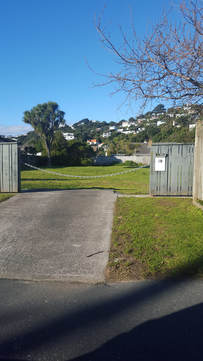 Following on from the advice of the New Zealand bishops, we emailed local Rongotai National representative Chris Finlayson and new Labour candidate Paul Eagle as well as all of the smaller parties asking them to comment on what their party seeks to achieve in light of the Bishops’ comments. We also asked them how they would vote on euthanasia given that any vote is likely to be a conscience vote rather than a party vote. We were a little surprised that neither Chris nor Paul have replied. We did however get a message from the Maori Party. They emailed back to say “Thank you for your email and apologies for the delayed response. Unfortunately our leaders unit are under considerable constraint at this stage and won't be able to forward through a comment on behalf of the party within the given timeframe. Ngā mihi“. Well, at least they responded! So, if by chance you meet any of the Rongotai candidates, here are some questions you might like to ask them: For some of the older members of our electorate they may not be able to care for themselves, they may not have family nearby, what happens if they can’t afford care in a place like Rita Angus? What can be done for them? Led by our St Vincent de Paul Society we have been helping refugees settle in to our area. Government has a role. What can be done to ensure we offer high quality, positive value-add support to make our former refugees feel at home as soon as possible? What support is there to ensure we know how they are settling in and that their needs are being met? Are we proud of our treatment of our refugee families and is there anything more we could or should be doing? There are large areas of government land in the Rongotai electorate including land where earthquake prone state houses have been pulled down. How can this land be used to help people struggling to get housing? We didn’t used to have beggars in our area, we do now. Some people say these people have mental health issues and need special care. Others say the benefit system doesn’t meet everyone’s needs and people fall through the cracks. Regardless, what do we need to change so that people don’t feel they have to beg to survive? When it comes to the environment, our electorate is kept clean by strong winds but we are just as polluting as other areas in the transport choices we make. How can the range of transport options be broadened so that we have less polluting options? ...OR TAKE THE DIY OPTIONInitiated by our St Vincent de Paul group in early 2016 and since led ably by Annette Bridgeman and her band of helpers simple efforts can make a big difference in people’s lives. 1. The SVDP visitor delayed their weekly visit until a couple of hours after lunch time before calling at the lonely person’s place. “Are you alright?” the visitor said. “Yes, yes,” she replied sobbing, “I just thought that no-one was going to come to see me today”. Our visit may be the only contact someone has had with another person in the week. This is an example of how much a visitor is appreciated by the lonely person, even if it doesn’t involve much to do. 2. A SVDP member visits elder parishioners in rest homes around the region. Some lonely residents meet only those who pass their door. Their family and friends may have died, or moved away, or cannot come and see them unless there is a crisis. The visits enable the lonely person to recall stimulating memories from the past and feel loved. 3. A father of school-age children lost his job and was out of work. The family was in dire need as the mother suffered from ill-health and could not work. Over several weeks, a SVDP member took around a bag of food items, toiletries, milk and bread each week from the foodbank. This small donation helped the parents cope with the needs of their children, and showed them they were not completely alone in their troubles. 4. A refugee family was really struggling to make ends meet after arrival in New Zealand whilst the adults looked for employment, but straightaway the kids needed uniform items, shoes and stationery for school. Kind parishioners had made donations for local students in such dire need. The SVDP member met the family at the shops, helped them choose the right gear over a couple of hours, and paid the shops directly for the goods from parishioners' donations. We hope we showed them our Holy Father’s assurance to migrants and refugees that “they have a special place in the heart of the Church”. 5. Through a hospital chaplain we learnt of two overseas visitors who had dashed to NZ to be with their hospitalised son (who thankfully recovered). The cost of airfares and motel was tough, leaving little for food. SVDP members took bags of food to them during their stay and drove them to the airport departure. The parents expressed their “heartfelt appreciation for receiving such love and help from strangers on the other side of the earth”. A St Vincent de Paul member and a parish pastoral council member are teaming up at our seven Masses across Holy Trinity Parish on the last Sundays of July, August and September to seek our prayers for those in need, boost their membership and parish participation, asking us to be watchful to those in need, and resurrecting the Conference of St Vincent de Paul in St Patrick's Church community Kilbirnie. SUNDAY GOSPELSWhen we have read ahead, when we have reflected on the Sunday Gospel coming up, we are ready to fully participate in the liturgy of the Word. Rather than the Sunday Gospel being a surprise and we are trying to keep up, we are in amongst it, hearing what it has to say for us. The following Sunday Gospel summaries are to help you join in our Sunday celebration. Sunday 6 Aug – Mt 17:1-9 See Jesus in a new light. He is the beloved son. He is present for us. The glory of God has been brought to a human level so we can understand. https://www.youtube.com/watch?v=Ub7kwmQipLM&index=23&list=PLeDNiKpHSQBCBkgGtJ8PkooBg6ajG0C-- Sunday 13 Aug – Mt 14:22-33 Sometimes we have to get out of our comfort zone and go beyond our fears to make a difference. https://www.youtube.com/watch?v=sNHdNsVH1sw Sunday 20 Aug – Mt 15:21-28 Honest persistence gets heard. Jesus recognises our faith. We try, we don’t seem to make progress but when we look back things have changed, we have been guided. https://www.youtube.com/watch?v=xNubPq2Z8Vo&index=18&list=PLeDNiKpHSQBCBkgGtJ8PkooBg6ajG0C-- Sunday 27 Aug – Mt 16:13-20 If Jesus asked who you are, what would you say? Peter was a great example of faith in the face of doubt. He didn’t always get it right but he is a great example for us to follow. https://www.youtube.com/watch?v=txwDyqrs-VA&index=19&list=PLeDNiKpHSQBCBkgGtJ8PkooBg6ajG0C-- POPE FRANCIS ON CHRISTIAN HOPEToday we reflect on Christian hope as the strength of martyrs. When in the Gospel Jesus sends the disciples on mission, he does not mislead them with mirages of easy success. On the contrary he warns them clearly that the proclamation of the Kingdom of God always involves opposition. And he also uses an extreme expression: “and you will be hated — hated — by all for my name’s sake” (Mt 10:22). Christians love but they are not always loved. Jesus places us before this reality from the start. In a somewhat strong measure, the confession of faith occurs in a hostile climate.
Christians are therefore men and women who “go against the tide”. It is normal: because the world is marked by sin which manifests itself in various forms of selfishness and injustice; those who follow Christ walk in the opposite direction. Not due to an argumentative spirit, but because of loyalty to the rationale of the Kingdom of God, which is a logic of hope that translates into a lifestyle based on the instructions of Jesus. And the first instruction is poverty. When Jesus sends his [disciples] on a mission, it seems that he takes more care to “strip” them than to “clothe” them! In effect, a Christian who is not humble and poor, detached from wealth and power and, above all, detached from self, does not resemble Jesus. Christians travel their path in this world with the essentials for the journey but with their heart filled with love. The true defeat for him or for her is to fall into the temptation of revenge and violence, responding to evil with evil. Jesus tells us: “I send you out as sheep in the midst of wolves” (Mt 10:16). Therefore without jaws, without claws, without weapons, the Christian will have to be rather prudent; at times even shrewd. These are virtues that are accepted by the logic of the Gospel. But never violence. In order to overcome evil, one cannot use the same methods of evil. The only strength Christians have is the Gospel. In difficult times, one must believe that Jesus is before us and does not cease to accompany his disciples. Persecution is not in contradiction to the Gospel but rather is part of it. If they persecuted our Teacher, how can we hope to be spared the fight? However, in the midst of the storm, Christians must not lose hope, thinking that they have been abandoned. Jesus assures his disciples: “even the hairs on your head are all numbered” (Mt 10:30); as if to say that none of man’s suffering, not even that which is most minute and hidden, is invisible to the eyes of God. God sees and certainly protects; and he will give his redemption. There is in fact in our midst Someone who is stronger than evil, stronger than the mafia, than the obscure conspiracies of those who profit at the expense of desperate people, than those who crush others with disdain.... Someone who has always listened to the cry of Abel’s blood from the earth. Christians therefore, must always be found on the “opposite side” of the world, that chosen by God: not persecutors but persecuted; not arrogant but meek; not charlatans but submissive to the truth; not imposters but honest men and women. This fidelity to Jesus’ style — which is a style of hope — until death, was to be called a beautiful name by the first Christians: “martyrdom”, meaning “witness”. There were so many other possibilities offered by the vocabulary: it could have been called heroism, abnegation, self-sacrifice. Yet the Christians of the first hour identified it with a term that suggests discipleship. Martyrs do not live for themselves; they do not fight to assert their own ideas, and they accept having to die solely out of loyalty to the Gospel. Martyrdom is not even the supreme ideal of Christian life, because over and above it there is charity, that is, the love of God and of neighbour. The Apostle Paul says it very well in the hymn to charity, understood as love of God and of neighbour: “If I give away all I have and if I deliver my body to be burned, but have not love, I gain nothing” (1 Cor 13:3). The idea that suicide bombers may be called “martyrs” is repulsive to Christians: there is nothing in their quest that can come close to the attitude of the children of God. Sometimes, reading the stories of so many of yesterday’s and today’s martyrs, — who are more numerous than the martyrs of the early days — we are amazed at the strength with which they have faced the supreme trial. This strength is a sign of the great hope that animated them: the certain hope that nothing and no one could separate them from God’s love given to us in Jesus Christ (cf. Rom 8:38-39). May God always give us the strength to be his witnesses. May he give us the opportunity to live out Christian hope especially in the hidden martyrdom of performing our daily obligations well and with love. EVERYBODY NEEDS FOOD No joke – there are people in our parish community and suburban area that can’t always afford food, and sometimes go without. Sitting in a warm house trying to decide what to have for dinner, is a dream for some in our parish area. While there may be a variety of reasons why some families are short on food and we might debate the causes, the most important thing is that parents and their children, and the elderly, that are missing out get something to eat. A warm grateful thanks to St Vincent de Paul’s 21 collectors at Pak 'N Save, Kilbirnie on Saturday 27 May, for taking part in the six-monthly SVDP Foodbank Appeal. Through the kind generosity of the eastern suburbs shoppers 75 boxes of food and other items were collected. Also, $267 cash was donated. Organiser Brendan Quirk from our Seatoun & Miramar Conference looked back on previous collections - this one was the best ever! 30 boxes of food and items were also collected by the other Conferences at a similar event on the same day in Johnsonville. Shoppers entering the supermarket are politely handed a list of items people struggling to buy groceries might most appreciate. They are asked to add one or more of these items to their shopping and as they leave the supermarket drop the items in at the collection table. The appeal is also a practical way in which Holy Trinity parishioners as collectors make a difference, giving of their time and talents to loving, humble service to others (“blessed the one who is kind to the poor” Proverbs 14.21). This is just one of the ways so many of our Holy Trinity parishioners support the mission of our own local SVDP Conference. Collectors are at the supermarket for only an hour out of their Saturday morning. Collectors either distribute the list of requested items or sort the donated goods at the collection table. The response collectors receive from shoppers is invariably one of whole hearted support. Shoppers appreciate being able to do something useful in helping those in trouble. They are keen to donate actual food items knowing they will go straight to people in need,distributed by the SVDP Centre in Newtown mainly and by local Conferences around Wellington. A big shout out to Pak N Save Kilbirnie who have supported the collection in the eastern suburbs over a number of years.  Feast day at Holy Cross In early June Holy Cross School celebrated the feast day of Marcellin Champagnat. He founded a religious order known as the Marist Brothers who dedicate their lives to teaching young people. Eighty-five years ago here in Miramar the Brothers opened up a school known as Marist Miramar; the original building now houses our Year 6-8 classes. In 1987 two schools, Holy Cross Miramar and Marist Miramar joined together and became Holy Cross Miramar. On the feast day Holy Cross students spent the day learning about the Marcellin and the Marist Pillars and how we uphold these today. Thank you to Mr Kelly Smith and Mr Solia who prepared and presented this learning to all of our classes. New ministers During the month, new ministers were commissioned. These ministers not only share the Word of the day but also Eucharist. While Mass is the pinnacle of our celebrations here in the parish lead by our priests Fr Ephrem and Fr Gregory, they can’t be in all places at all times. In their absence, the new ministers can lead us in special liturgy. New minister Tony Sutcliffe (pictured with the books to be used for special liturgy) says his parents were very proud when he became a Justice of the Peace, if they were still around they would have been ecstatic at his new position. Other new ministers are Patricia O’Donnell, Leona Foster, Malia Falani-Andrews and Frances Meech. Congratulations to them all! Jubilee celebrations continue During the month St Patrick’s Church hosted all of the priests in the Archdiocese celebrating jubilees. Three celebrated 60 years, five 50 years and two, including Fr Gregory, 25 years. It was a wonderful celebration of thanks giving. Feast day at St Anthony’s Recently, St Anthony’s School enjoyed celebrating St Anthony's Feast Day. Students completed activities during the day centered around learning more about our school's crest. Thank you to Davinia Penman and Takahe Class who organised our special liturgy in the afternoon. The students and staff enjoyed a new school tradition of chocolate cake for morning tea. Thank you to Vince McArley and Nicolette Pink for making the amazing cake - it was delicious!! Cardinal John visits On Friday the 12th of May Cardinal John came to visit St Patrick’s Primary School. The whole school was excited. We had two students to welcome him, their names are Akash and Matthew. Afterwards we sang our school song. Cardinal John talked about his favourite parts of being a: priest, bishop, archbishop and cardinal. He also talked a little about his background like how he got taught by the St Joseph’s sisters and went to St Joseph’s school. The Cardinal also talked about his coat of arms and what it means to him. At the top of his coat of arms is a hat that cardinals used to wear. In the middle, there is a bible. The A means the alpha and the O stands for omega (the beginning and the end). He chose his motto from the prophet Baruch ( 5:4 ). Behind the bible there is a shepherd’s staff this is symbolic of a shepherd and his sheep. Behind the staff there is a Metropolitan cross. When Cardinal John was about to leave two students named Angelei and Daniel thanked him and sang a song called Mo Maria. WHAT IS A SYNOD? It’s easier to say what a Synod isn’t, than what it is. A Synod is not a parliament. It cannot change Church teaching, as that is a matter for the universal Church. A Synod is not a business summit or a conference where people come to listen to speakers and make decisions. The people who participate in a Synod are asked to prayerfully discern together where the Holy Spirit is taking us. A Synod can make recommendations to the Archbishop about pastoral directions and priorities. When he makes decisions on the recommendations, they apply across the Archdiocese. So, after the Synod is complete the discernment and any decisions the Archbishop might make will be passed on to Parish Councils so they can consider an appropriate local response. In this particular Synod the prayerful discernment will be around leadership, people on the peripheries of society, bicultural relationships, one body of Christ, our own peripheries, refugees and migrants, care for creation, fellow Christians, accompanying one another as well as marriage and families. SYNOD 2017 - LEADERSHIP Pope Francis constantly stresses the need for the Church to go out to those on the edges of society, the poor, the marginalised, the homeless, those who struggle. He himself visits prisoners, refugees, and the poorest parts of the cities he travels to. Through the Papal Almoner Archbishop Krajewski he constantly reaches out to people living on the streets of Rome. In the last few years pastoral areas, parish amalgamation and earthquake issues have absorbed a lot of time and resources in the Archdiocese. By their nature these processes have been inward-looking, and in many places they are still being worked through. Our buildings are not perfect, our liturgy and sacramental programmes will always need attention, and the downstream effects of parish amalgamations will continue for some time. But the poor, the imprisoned, the sick, refugees, and those who struggle are here now, in our cities and small towns, in the areas covered by our parishes. Their need is a silent summons to us to let go of our inward focus and take up the challenge of better serving the marginalised in our communities. We will ourselves be evangelised in the process, because we will encounter Jesus. There is a temptation to say that because we have various Catholic organisations which serve those in need we have fulfilled our duty. It is not enough. 1. Who are the poor, the marginalised, the struggling, the homeless, in our local areas? 2. What do the words of Pope Francis (see quotes) mean in the context of our parishes, schools and communities? 3. As a parish/school/community, what can we do to serve those in need better, both in terms of their needs and in advocating for them? Submit your answers to the Archdiocese: www.surveymonkey.com/r/2017Synod POPE FRANCIS ON PENTECOST
On the day of Pentecost, the Spirit came down from heaven, in the form of “divided tongues, as of fire… [that] rested on each of them. All of them were filled with the Holy Spirit, and began to speak in other languages” (Acts 2:3-4). This is how the word of God describes the working of the Spirit: first he rests on each and then brings all of them together in fellowship. To each he gives a gift, and then gathers them all into unity. In other words, the same Spirit creates diversity and unity, and in this way forms a new, diverse and unified people: the universal Church. First, in a way both creative and unexpected, he generates diversity, for in every age he causes new and varied charisms to blossom. Then he brings about unity: he joins together, gathers and restores harmony: “By his presence and his activity, the Spirit draws into unity spirits that are distinct and separate among themselves” (CYRIL OF ALEXANDRIA, Commentary on the Gospel of John, XI, 11). He does so in a way that effects true union, according to God’s will, a union that is not uniformity, but unity in difference. For this to happen, we need to avoid two recurrent temptations. The first temptation seeks diversity without unity. This happens when we want to separate, when we take sides and form parties, when we adopt rigid and airtight positions, when we become locked into our own ideas and ways of doing things, perhaps even thinking that we are better than others, or always in the right, when we become so-called “guardians of the truth”. When this happens, we choose the part over the whole, belonging to this or that group before belonging to the Church. We become avid supporters for one side, rather than brothers and sisters in the one Spirit. We become Christians of the “right” or the “left”, before being on the side of Jesus, unbending guardians of the past or the avant-garde of the future before being humble and grateful children of the Church. The result is diversity without unity. The opposite temptation is that of seeking unity without diversity. Here, unity becomes uniformity, where everyone has to do everything together and in the same way, always thinking alike. Unity ends up being homogeneity and no longer freedom. But, as Saint Paul says, “where the Spirit of the Lord is, there is freedom” (2 Cor 3:17). So the prayer we make to the Holy Spirit is for the grace to receive his unity, a glance that, leaving personal preferences aside, embraces and loves his Church, our Church. It is to accept responsibility for unity among all, to wipe out the gossip that sows the darnel of discord and the poison of envy, since to be men and women of the Church means being men and women of communion. It is also to ask for a heart that feels that the Church is our Mother and our home, an open and welcoming home where the manifold joy of the Holy Spirit is shared. Now we come to the second new thing brought by the Spirit: a new heart. When the risen Jesus first appears to his disciples, he says to them: “Receive the Holy Spirit. If you forgive the sins of any, they are forgiven them” (Jn 20:22-23). Jesus does not condemn them for having denied and abandoned him during his passion, but instead grants them the spirit of forgiveness. The Spirit is the first gift of the risen Lord, and is given above all for the forgiveness of sins. Here we see the beginning of the Church, the glue that holds us together, the cement that binds the bricks of the house: forgiveness. Because forgiveness is gift to the highest degree; it is the greatest love of all. It preserves unity despite everything, prevents collapse, and consolidates and strengthens. Forgiveness sets our hearts free and enables us to start afresh. Forgiveness gives hope; without forgiveness, the Church is not built up. 25 YEARS OF DEDICATED SERVICE Fr Gregory has completed 25 years of dedicated priesthood. He has a deep faith which he is always ready to share with others. He works hard for his parishioners. It was a joy to be with him as he celebrated his jubilee on 16 May. Speaking of the special experience of attending his first Mass as a child and the wonderful colours of the priest’s robes, he recounted that he told his mother there and then that he was going to be a priest. His determination didn’t let up. Reflecting on Fr Gregory’s priesthood Fr Mario told the story of eight brothers. The first brother told his mother he was going to be a doctor to make people better. The second brother’s time came and he said he was off to be a lawyer to help resolve disputes. The third brother went off to be a teacher as he wanted to inspire people. There were five brothers left. The fourth brother left the household telling his mother that he was off to become a solider to defend what is right. The fifth brother said he was going to be an announcer. The sixth wanted to be an engineer to build bridges. The seventh brother wanted to be a farmer to sow the fields. In telling the story Fr Mario after a suitable pause said that Fr Gregory, the last brother, proudly told his mother that he was going to be a priest. He told his mother that he wanted to make people better, resolve disputes, inspire people and that he would be strong in defending what is right, he would be an announcer of good news, that he would build bridges and be the sower of good things in the field of faith. You can be sure that Fr Gregory made his mother and entire family very proud. The priesthood is not just any job, it is a sacred vocation of being of Christ here on earth at the most critical points in people’s life journey. Fr Gregory at his jubilee spoke of the great joy the priesthood has given him. There is an open invitation to all single men in the parish and beyond to explore a vocation with the Capuchins. If you are looking for a role in life that is as fundamental as priesthood, ask Fr Gregory about his own vocation. If it is for you, you could start by living in community getting to know the Capuchin life. CARDINAL JOHN CALLS A SYNOD “We live in a privileged time with the leadership of Pope Francis, who four years ago told us that he wants “a poor Church for the poor.” This is, of course, a vision that comes from the early times of Christianity. Pope Francis has also said that he wants the Church to reach out to the peripheries, the margins. He invites us “to be bold and creative in rethinking the goals, structures, style and methods of evangelisation in (our) respective communities.” (Evangelii Gaudium 33) “Let us take his invitation into our Synod, exploring how we might boldly and creatively reach out to the marginalised, refugees, the wider Christian community, youth and families. The Church has a mission to serve the community beyond itself. We must never confine ourselves to self-service or self-preservation.” “…the Son of Man himself did not come to be served but to serve…” MARK 10:45 Re-orienting parishes from an internal focus to an outward-looking approach requires people who can lead. In previous times most people saw the priest as the sole leader of the parish. With fewer and older priests, lay people have increasingly assumed leadership roles in parishes. In some places in the Archdiocese trained lay pastoral leaders work collaboratively with priests. Across the Archdiocese many lay people have taken on leadership roles in a voluntary capacity. Parish leadership can become primarily about maintaining the life of the parish, which, while very necessary, is not enough. A Church (or parish) which only sustains its own internal activities is in the words of Pope Francis “self-referential” – it “keeps Jesus Christ within herself and does not let him out”. If there is to be a new focus on mission in the parish, the parish priest and pastoral council will play a key role in fostering and supporting that reorientation. Encouraging new leaders to come forward and developing new initiatives with an external focus will be part of that process. Leadership can be exercised in many ways and at many levels. It may be leading a one-off project, longer-term leadership in an area needing specialist skills, or participation in a leadership team, or taking the initiative in starting something new. Whatever form leadership takes and for however long, at its heart it is always service. 1. What can we do to respond to the challenge to lay people “to apply the Gospel to the transformation of society” (Evangelii Gaudium 102)? 2. What can we do to encourage new initiatives and leadership in our faith communities in response to the needs outlined by Pope Francis in his interview with Eugenio Scalfari?? Submit your answers to the Archdiocese: www.surveymonkey.com/r/2017Synod
POSITIVE LEARNING Over the holidays as part of St Patrick’s Primary launch for their schoolwide Positive Behavior for Learning Programme (PB4L), the children were invited to show off their creative talents in an art competition. The competition was to draw, paint or collage a picture that shows children at our Kilbirnie school following school expectations. The seniors were also invited to create a symbol that might represent each expectation. The purpose of the positive behavior plan is to work together with our school community continuing to build an environment that is safe, supportive, loving, culturally responsive, and that enables our students to achieve personal excellence. Staff, families and school leaders work together to follow this plan. At St Patrick’s Primary School behavior expectations are: · Respect people and property · Responsible for our actions · Ready to learn All behavior expectations are interwoven together with our School Community and Mercy and School Values: · Resilience,manawaroa · Unity, Kotahitanga · Love, Aroha · Social Justice, Tika · Respect, Te Tapu o Te Tangata A CHALLENGE FROM HOLY CROSS TO US ALL At the end of last term Holy Cross School sent its students off for the term break with an invitation to reflect daily on the question, ‘How have I made the world a better place?’ Answering this question provides a powerful way for us to focus on matters of importance; it invites us to be mindful of others, those close to us as well as those further away. Let’s continue to do this. In the Gospels Jesus tells us a parable in which he is the gate which takes us to God. At the end of the reading Jesus says, “I have come so that they may have life and have it to the full.” Living life to the full doesn’t mean having all the latest toys or the most fashionable clothes or the biggest house. And it doesn’t even mean just having all the things we need in life, like enough food and somewhere safe to live, although this is an important part of living life to the full. It means being the best person that we can be, living our lives well and having the chance to use all our gifts and talents for the good of all. By using and sharing our gifts and talents we will indeed help to make the world a better place. Holy Cross invites us to sit down at the dinner table and each night acknowledge and celebrate the gifts and talents of one member of our family. LOOKING AFTER OUR CHURCHES Our challenge is to live out the mission of Jesus in our everyday lives - how can we as a family do this, this month? St Anthony’s families have received a Signmee asking for help to look after their church. Perhaps volunteering to be on one of these rosters is one way that we can contribute to ‘carrying out the mission of the church.’ The commitment is not large as long as everyone lends a hand. We can use our talents in hospitality, reading, gardening and cleaning. GOSPELS FOR JUNE (CLICK ON THE LINKS FOR MORE) Sunday 4 June – John 20:19-23 The disciples were hiding behind locked doors. The resurrected Jesus appeared to them showing his wounds. He breathed the Holy Spirit on them. Jesus challenged the disciples to overcome their fears, unlock the doors and go out to treat people in the way He had treated them. We need to be able to forgive, to embrace the world and to show it boundless love. https://www.youtube.com/watch?v=OyApFiqrGvQ&list=PLeDNiKpHSQBDAIAYJEHi42R7ctvsFuTEU&index=36 Sunday 11 Jun – John 3:16-18 God didn’t send his son to condemn the world but to give abundance of life. God’s love is massive, all embracing. There is no end to it. Don’t be tricked into thinking of God as harsh and condemning, know that you are loved. https://www.youtube.com/watch?v=oBjOrMjmDSc&list=PLeDNiKpHSQBDAIAYJEHi42R7ctvsFuTEU&index=3 Sunday 18 Jun – John 6:51-58 Eat and drink Jesus for life and be with Him forever. Jesus knew he was going to die suddenly. What could he leave us a physical link? Every Mass Jesus is ready to come to us and be with us helping us to shoulder our burdens. https://www.youtube.com/watch?v=xDZfIEp0lQM&list=PLeDNiKpHSQBDAIAYJEHi42R7ctvsFuTEU&index=12 Sunday 25 Jun – Matthew 10:26-33 Proclaim what is whispered in your ear in prayer from the rooftops. Don’t be afraid, there is no need to hide the great fortune we have been given. At work or wherever we are we need to be brave enough to speak out for love and justice. People will listen and what we say will make a difference. https://www.youtube.com/watch?v=hqKUggyBcCU&t=65s POPE FRANCIS Thank God for women “Without women, there is no harmony in the world.” That was the message of Pope Francis in his homily at the morning Mass at the Casa Santa Marta. At the centre of his reflection was creation of woman, as told in Genesis. Men and women are not equal; the one is not superior to the other. But it is the woman, and not the man, who brings that harmony which makes the world a beautiful place. Without women, there is no harmony “Often when we speak about women,” the Pope said, we think of them in a ‘functionalist’ manner. Instead, we should see women as bearers of a richness that men do not possess: women bring harmony to creation: “When women are not there, harmony is missing. We might say: But this is a society with a strong masculine attitude, and this is the case, no? The woman is missing. ‘Yes, yes: the woman is there to wash the dishes, to do things…’ No, no, no! The woman is there to bring harmony. Without the woman there is no harmony. They are not equal; one is not superior to the other: no. It’s just that the man does not bring harmony. It’s her. It is she who brings that harmony that teaches us to caress, to love with tenderness; and who makes the world a beautiful place.” Exploiting people is a crime, but exploiting women is worse: it destroys harmony In his homily, the Pope considered three moments in Creation: the solitude of the man, the dream, and the destiny of both the man and the woman: to be “one flesh.” The Holy Father gave a concrete example: Once, during an audience, while he greeted the people, he asked a couple who were celebrating their 60th wedding anniversary, “Which of you has had the most patience?” “And they looked at me, they looked me in the eyes – I’ll never forget those eyes, eh? – then they turned and they told me, both together: ‘We are in love.’ After 60 years, this means ‘one flesh.’ And this is what the woman brings: the capacity to love one another. Harmony for the world. Often we hear: ‘No, it is necessary in this society, in this institution, that here there should be a woman because she does this, she does these things.’ No, no, no, no! Functionality is not the purpose of women. It is true that women should do things, to do things as we all do. The purpose of women is to make harmony, and without women there is no harmony in the world. Exploiting persons is a crime of ‘lèse-humanité’: it’s true. But exploiting a woman is even more serious: it is destroying the harmony that God has chosen to give to the world. It is to destroy.” Exploiting a woman, then, is not only a crime: it amounts to “destroying harmony,” the Pope said, referring also to the day’s Gospel story of the Syrophoenician woman. God has created woman so that we would all have a mother Pope Francis concluded his reflection with a personal note: This is the great gift of God: He has given us woman. And in the Gospel, we have heard what a woman is capable of, eh? She is courageous, that one, eh? She went forward with courage. But there is more, so much more. A woman is harmony, is poetry, is beauty. Without her the world would not be so beautiful, it would not be harmonious. And I like to think – but this is a personal thing – that God created women so that we would all have a mother. 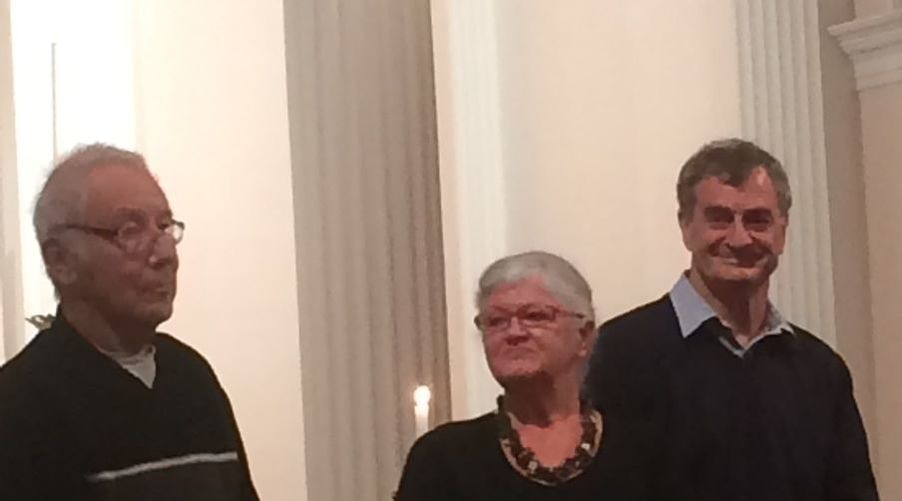 JOHN ROGERS (LEFT) RECEIVES THE DELARGEY AWARD, with ANNE & ANDY LOVELL Award for youth leader Early last month parishioner John Rogers received the Delargey award for youth leadership. The Awards recognise significant and outstanding contributions made in the field of Catholic youth ministry in New Zealand. They are named in honour of Cardinal Delargey. The award ceremony was held last month as part of the Archdiocese youth mass at Sacred Heart Cathedral. Fellow parishioner and previous youth leader Caroline Newson introduced John to the assembly. He received the award to great applause. After receiving the Award John gave advice based on what he has found to work “you need to be part of a group of mixed-age people. Make sure they all share the vision. Make sure they all buy into the process – conversion follows on from preaching of the Kerygma, then Catechesis, and Discipleship. If they don’t buy it, you may not have the right group. You do not want to be part of a Ministry based purely on social or cultural needs. Pray together and often. Enlist some older college-aged teens, these will become your Teen Leaders. Start to meet with all of these people just to talk and pray together. Soon you’ll be ready to start. You need a programme of some kind to help get things rolling. Alpha is good. It starts to build community and faith, then you can move pretty seamlessly into a weekly programme of some kind. Don’t push them to go to Mass. When they are ready it will happen. A halfway-good music group is pretty much a must. You will want someone who can play the music people like, music that helps to bring them together, music that inspires them. “If you are serious about this you can wave goodbye to a good part of your free time. You will also see God work in the lives of His lambs, time after time after time. That makes everything else worth it!” Sage advice from a Delargey award holder. The Awards provide recognition for ministry workers and supporters of ministry with young people in New Zealand. The Awards recognise the place of long-term involvement in Catholic ministry with young people. Well done John. MAY IS THE MONTH OF MARY Mary possesses a unique relationship with all three Persons of the Trinity, thereby giving her a claim to the title of Queenship. She was chosen by God the Father to be the Mother of his Son; God the Holy Spirit chose her to be his virginal spouse for the Incarnation of the Son; and God the Son chose her to be his mother, the means of incarnating into the world for the purposes of the redemption of humanity. This Queen is also our Mother. While she is not our Mother in the physical sense, she is called a spiritual mother, for she conceives, gives birth, and nurtures the spiritual lives of grace for each person. As Mediatrix of All Graces, she is ever present at the side of each person, giving nourishment and hope, from the moment of spiritual birth at Baptism to the moment of death. The Way of the Cross Accolades to parishioner Tony Sutcliffe, who with Rev Tim MacKenzie of our sister Anglican parish, arranged a most successful procession on Good Friday. The procession started at St Anthony’s with readings and hymns. Then behind the cross the procession walked quietly to St George’s to continue the readings. By the time Seatoun beach had been reached it had become clear that many had noticed the procession. A reminder to them that it was Good Friday and that much can be learnt about our own human journey in the sacred Easter journey. At the water front a large cross was made on the foot path from stones taken from the beach. A further reminder to passers by. After readings at the former St Christopher’s church the procession ended back at St Anthony’s for hot cross buns. The hot cross buns were enthusiastically received. 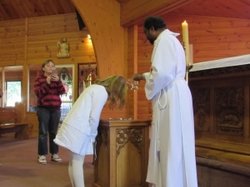 Beatrice’s baptism On the 15th of March, Beatrice had her baptism in front of the whole St Patrick’s Primary School. Beatrice chose two people to be the altar servers; Breanne and Francis. She also chose these people to read the scriptures; Ella, Nardos, Angelei and Esipito. Firstly, Father prepared the blessed water and the candles. Then he handed out the booklets with Mass responses. Next he read from the booklet and Beatrice’s family responded. After that Father Ephrem asked Beatrice’s mother to bless her chest and the forehead. Then Father said some more prayers. Following this, Father called Beatrice up to get baptised with the holy water. After that Father lit the candle and asked some questions of her mother and her godparent. Finally, Father took Beatrice’s candle and lit it, then said some prayers. We welcome Beatrice into our Christian family. Holy Cross School reflection on Palm Sunday Holy Cross School families were reminded on Palm Sunday that palms are a sign of how the people cut branches and laid them in the road before Jesus as they shouted with joy. The School community was asked to consider some questions that we might all find useful. Can you think of a time you welcomed someone else, into your home, your class, your game? What did you do? Can you think of a time when you have been welcomed by others? What did they do to make you feel special and welcome? We need to be mindful of our actions and try to welcome all people as we would welcome Jesus. Jesus is in all people, so we should treat all people with the respect, love and kindness that we would show to Jesus. We should try to welcome all people into our lives and treat them as we would like to be treated. The school community was then asked to say these prayers each night, you might like to join them: We pray for world leaders: that they may be inspired by Jesus’ example to care for all people, especially those who are poor. Lord, hear our prayer. We pray for our brothers and sisters throughout the world: that we may look for Jesus within them and that we treat each other as we would wish to be treated. Lord, hear our prayer. We pray for our parish, family and friends: that we may welcome all people with respect and love, as Jesus was welcomed into Jerusalem. Lord, hear our prayer. God of truth, we thank you for sending us your Son Jesus. Open our hearts so that we may welcome him in others and bring us together to make the world a fairer place. Amen. Sunday Gospels for May Sunday 7th May (John 10:1-10) The sheep follow the shepherd because they recognise his voice. We are safe in following Jesus as our shepherd. In doing so we are given life and have it to the full. This is one of the most beautiful parts of the Gospels. Who else can promise and deliver on so much. Jesus is inviting us to know him, to trust in him and share what he has to offer. In this passage Jesus is asking us where our heart is. Do we listen and stay close to materialism, greed for power and prestige or do we stay close to Jesus? Sunday 14th May (John 14:1-12) A place has been prepared for us. Jesus is the way the truth and the life. Not only are we offered fullness in our life here on earth but also beyond. Each of us has our own room in the place that has been prepared for us. The invitation to us is a personal one. We have no need to fear for the future. Sunday 21st May (John 14:15-21) The commandments are simple and Jesus lives within us to make keeping them easier. But, we all know that many alternative paths are available to us and it is easy to get distracted and take the wrong path. In our human frailty, it is good to ask ourselves in all we do, are we taking the loving path? If the answer is yes and we are loving God and our neighbour we can’t go wrong. When God seems distant and our neighbour is annoying us it may be hard to stay loving but is there any real alternative to being loving? Sunday 28th May (Matthew 28:16-20) We have been asked to make disciples of all nations and help them to keep the commandments that have been given to all. We don’t do this work on our own. Often opportunities are given to share what Jesus means to us. It is fundamental to our faith that we don’t run away from the opportunity. We need to take courage and respond with the right word or deed. In doing so we share the good fortune that we have received and make the world a fuller and more loving place, we discover what it is to work in the vineyard guided by a kind and supportive master. Pope Francis - Talking to children recently in Rome [Pope Francis:] I will ask a question in exchange: why is that each time you draw near to Jesus, you realise that He has approached you first? If we are able to draw near to Jesus, it is because He has drawn near first. He always takes the first step. Do you understand this? Does Jesus refuse to be with us? I ask you.... [Children:] No! There. Does Jesus await us? Is he or is he not waiting for us? Yes! But does he await us like this, or does he do something else? [A boy replies: “He comes to meet us”] He comes to meet us! Well said! Who said this? You are good! Well done! Jesus always comes to meet us. And if you see Jesus coming from this way, and you somewhat play the fool and look the other way, does Jesus go away? No! He helps you! Louder! No! You, what does Jesus do? You said it well.... [Boy:] He helps you! Does he take you by the ear and do this? [gesturing] [Boy:] No! He makes you understand that you have done wrong. That’s it. He speaks to your heart; he makes you understand what love is. And if you do not want to hear him, what does he do? Does he go away? [Children:] No. He stays. He stays there. He is patient. Jesus always waits. And this is the answer to your question. We approach Jesus, but we discover that He has drawn near first. He has been there, waiting for us. And he waits. And he speaks to us. But he is always there; he is always there; he is always there. And if you have done something bad, does he push you away? No! No? He forgives you.... Ah ... this is a beautiful word that you have said.... He forgives you! And if you.... You have to tell him that you are sorry you did these things, isn’t that true? Yes. And he forgives you. You are contrite, and he forgives you. But it is always Jesus who first draws near. Lent leads us to Easter By Joan Levy Earle Lent is coming to an end, and as we approach Holy Week and Easter of 2017, let us contemplate the strength of our belief in Jesus Christ, the Son of God. Do we consider Him to be part of a legend, and the star of a nice story of salvation, or do we truly believe that He suffered and died on the Cross on Good Friday? For me, thinking of Him as a legend was the extent of my faith about 40 years ago. I went to church regularly and participated in the service, but my relationship with the Lord was not a personal one. I am a convert to the Roman Catholic tradition. I chose to change my life because of the influence of several people whose paths crossed mine, and who seemed to have a joy in their hearts that I lacked in my life. That was 50 years ago, and shortly after my conversion, I met a wonderful Catholic man who became my husband 9 months later. He was a strong cradle Catholic, but quiet, and he did not talk about God much to me. He just insisted that we not miss Mass, which was an important lesson for me. Later on a retreat, it was Mary, the Mother of Jesus who helped me give birth to a new love for Her Son in my soul. So now, every Good Friday, there is a very real remembrance of Someone who lived, was betrayed, and agreed to suffer and die on that Cross in order that I might have eternal life. Jesus died so that all the sins that I selfishly commit during my life can be erased when I sincerely say I am sorry. Reconciliation is one of the greatest of all gifts we have received. Your confession frees you of the guilt that can darken your soul, and through the mercy of God, you can start over again. If you have been avoiding a visit to the confessional, or having a conversation with your priest to share your faith concerns, give yourself a beautiful present this Easter. Jesus’ mercy and love will then be received into your heart and soul, and you can sing Alleluiah and truly rejoice on Easter morning. Easter blessings from my home… to each of yours! Petra Bouras, is in Year 3 at St Anthony’s School. Along with her class she has been learning about Lent. She shares her research with us What is Lent? Lent is a time of preparation for Easter, (when Jesus rose from his death). After 40 days of lent, it is Easter, the Christian holiday that celebrates the resurrection of Jesus Christ, the Son of God. Lent is a time to remember when Jesus fasted on food and water. Technically, he had nothing. We always need to give thanks for what we’ve got. Lent is also a time to fast something like what Jesus did but only ONE thing not everything. What is almsgiving? Almsgiving is a practice of giving money or food to the poor. Alms is based on money or food given to charity. The word alms is used many times in the King James version bible. The English word alms is based on the Greek word eleemosynary. Next time you’re in St Patrick’s Church you’ll see our “new piano”. Our old one had to be replaced and we were lucky enough to be offered a piano for $2000 by an elderly couple who were moving to a retirement village. Simon Manning, owner of Harbour City Funeral Home, who has helped with various purchases since the new St Patrick’s Church was built, came to our aid again by donating half the amount. We have also had a generous donation of $500.00. If you would like to make a donation towards the remaining cost, please put it in an envelope marked “Piano Donation” and if over $5 your planned giving number, or if you are not on planned giving but would like a donation receipt, put your full name and address in the envelope along with your donation and place in the collection basket. Also if you would like to join the music group by playing the piano for 10am Mass at St Patrick’s once a month contact Ian on 387 7667. Or if you are able to play for 5.30pm Saturday and/or 10am Sunday Masses once a month contact Fr Ephrem. This month, Sister Marcellin came to speak to our St Patrick’s School to tell us about her life as a Mercy Sister. She brought photos from her early days to show us what she looked like when she wore a habit when she was young. After she showed us her photos, she handed them out so we could see them up close. Once she handed them out, she started to tell us about what she did as a Mercy Sister. She told us how long she has been a Mercy Sister and some other information about herself. Then she asked us some questions about some of the Works of Mercy and about the gospel values. She finished up with a speech about how she became a Mercy Sister and some other information. During March Holy Cross School hosted the Parish Sunday Mass. We were delighted to see so many of our families present at this special gathering. Thank you to our DRS Nick Solia for his contribution to the Mass preparations, to the students who took on leadership roles and for the thoughtful prayers our students wrote which helped create a beautiful artwork, reflective of our 2017 focus, Care for Our Common Home. Thank you to our parents who organised food and drinks and showed warm hospitality. What a special gathering. 102 people attended the parish property forums, plus 33 written submissions were received; a wide variety of views were expressed Minutes of the forum are now available on the parish web-site. If you go to: www.holytrinity.parish.nz/property you can read the initial needs assessment, early development of options and subsequent comment from the forum plus a summary of written submissions. The property committee is now developing its recommendations to the parish. Sunday Gospels for April - miracles Sunday 2nd April (John 11:1-5) Martha and Mary wept the loss of their brother. Martha had utter faith in Jesus when he arrived seemingly too late. She had the faith that where Jesus is good things happen. She asked Jesus to do something impossible and he did. Her faith asked, his divinity acted; together they brought Lazarus back to life. With our faith in partnership with Jesus’ divinity we too can be partners in bringing unexpected good. Sunday 9th April (Matthew 26:14-27:66) While eating with his disciples, Jesus took bread, and when he had given thanks, he broke it and gave it to his disciples, saying, “Take and eat; this is my body”. As they accepted his offering they did not fully appreciate that another great miracle was being performed. Are we open to the signs being given to us? Sunday 16th April (John 20:1-9) Jesus not only performed miracles in life, he was leading up to his greatest miracle. He may have been put to death, supposedly extinguished. He rose from the dead. Life is everlasting. The women went to the tomb and he had gone. The disciples knowing that he was behind great rock rushed to check. The disciples were dumbfounded. They were on the cusp of discovering that the impossible had happened in a way that would change the way in which the world would understand life itself. Sunday 23rd April (John 20:19-31) Having risen from the dead Jesus appeared to the disciples and stood amongst them showing his wounds. It was Him. Never again would we need to fear death. Love conquers all, even death. No matter how stuck you get, there is no finality. Instead, Jesus has shown us that there is everlasting life. Sunday 30th April (Luke 24:13-35) Simple acts of Christianity we make can be misunderstood, even condemned. But, if we want to follow Jesus we must stay faithful to what is good and right. In doing so we need to be ready to take the flack that might come our way. We need to stand firm. In doing so those that torment, face the contrast between what is right and what is wrong, the beginnings of an understanding of faith and worship. Pope Francis’ Lenten Message The parable [in the Gospels] is unsparing in its description of the contradictions associated with the rich man (cf. v. 19). Unlike poor Lazarus, he does not have a name; he is simply called “a rich man”. His opulence was seen in his extravagant and expensive robes. Purple cloth was even more precious than silver and gold, and was thus reserved to divinities (cf. Jer 10:9) and kings (cf. Jg 8:26), while fine linen gave one an almost sacred character. The man was clearly ostentatious about his wealth, and in the habit of displaying it daily: “He feasted sumptuously every day” (v. 19). In him we can catch a dramatic glimpse of the corruption of sin, which progresses in three successive stages: love of money, vanity and pride (cf. Homily, 20 September 2013). The Apostle Paul tells us that “the love of money is the root of all evils” (1 Tim 6:10). It is the main cause of corruption and a source of envy, strife and suspicion. Money can come to dominate us, even to the point of becoming a tyrannical idol (cf. Evangelii Gaudium, 55). Instead of being an instrument at our service for doing good and showing solidarity towards others, money can chain us and the entire world to a selfish logic that leaves no room for love and hinders peace. The parable then shows that the rich man’s greed makes him vain. His personality finds expression in appearances, in showing others what he can do. But his appearance masks an interior emptiness. His life is a prisoner to outward appearances, to the most superficial and fleeting aspects of existence (cf. ibid., 62). The lowest rung of this moral degradation is pride. The rich man dresses like a king and acts like a god, forgetting that he is merely mortal. For those corrupted by love of riches, nothing exists beyond their own ego. Those around them do not come into their line of sight. The result of attachment to money is a sort of blindness. The rich man does not see the poor man who is starving, hurting, lying at his door. Looking at this character, we can understand why the Gospel so bluntly condemns the love of money: “No one can be the slave of two masters: he will either hate the first and love the second, or be attached to the first and despise the second. You cannot be the slave both of God and of money” (Mt 6:24). |
SHARINGIf you have news and views to share please email them to: holytrinity.wgtn@xtra.co.nz Archives
December 2018
Categories |
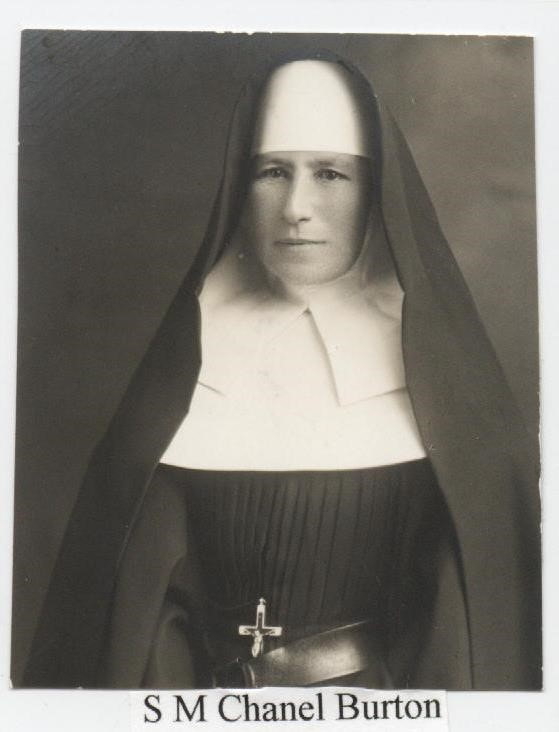
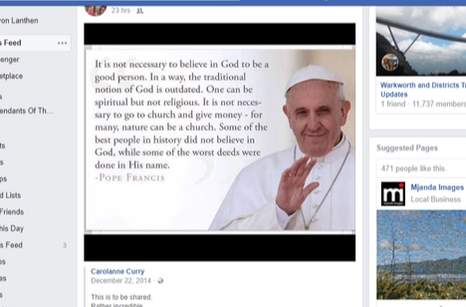
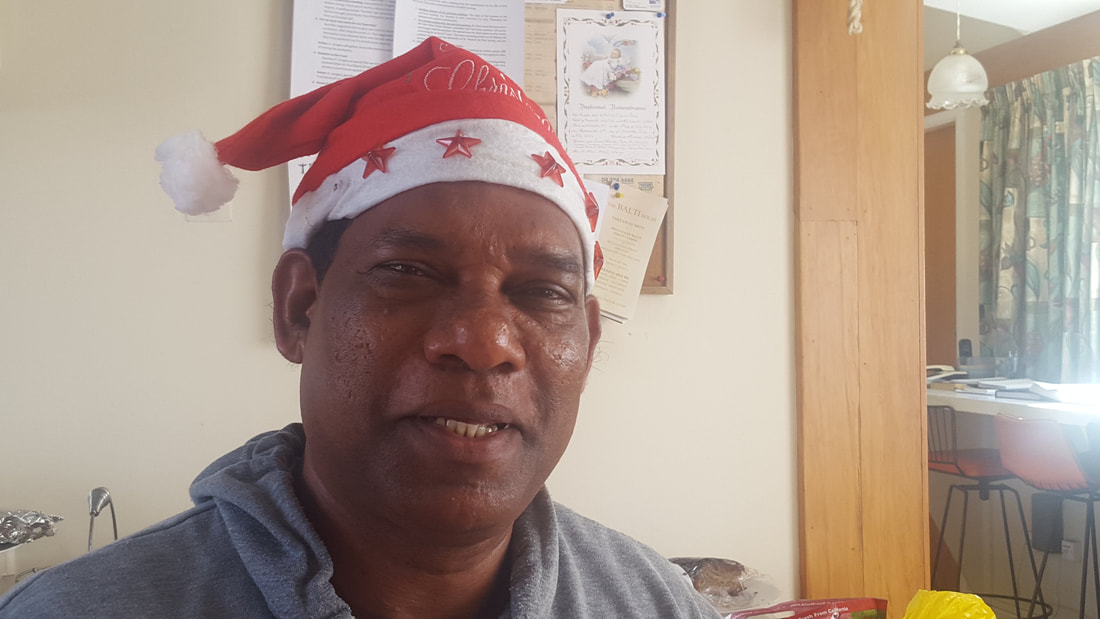


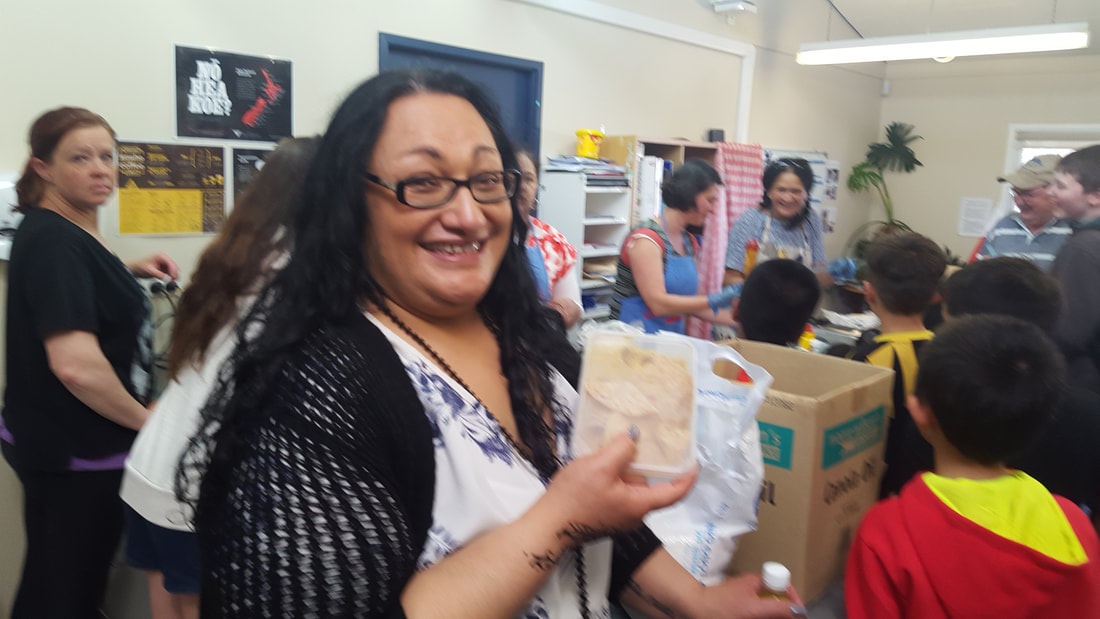
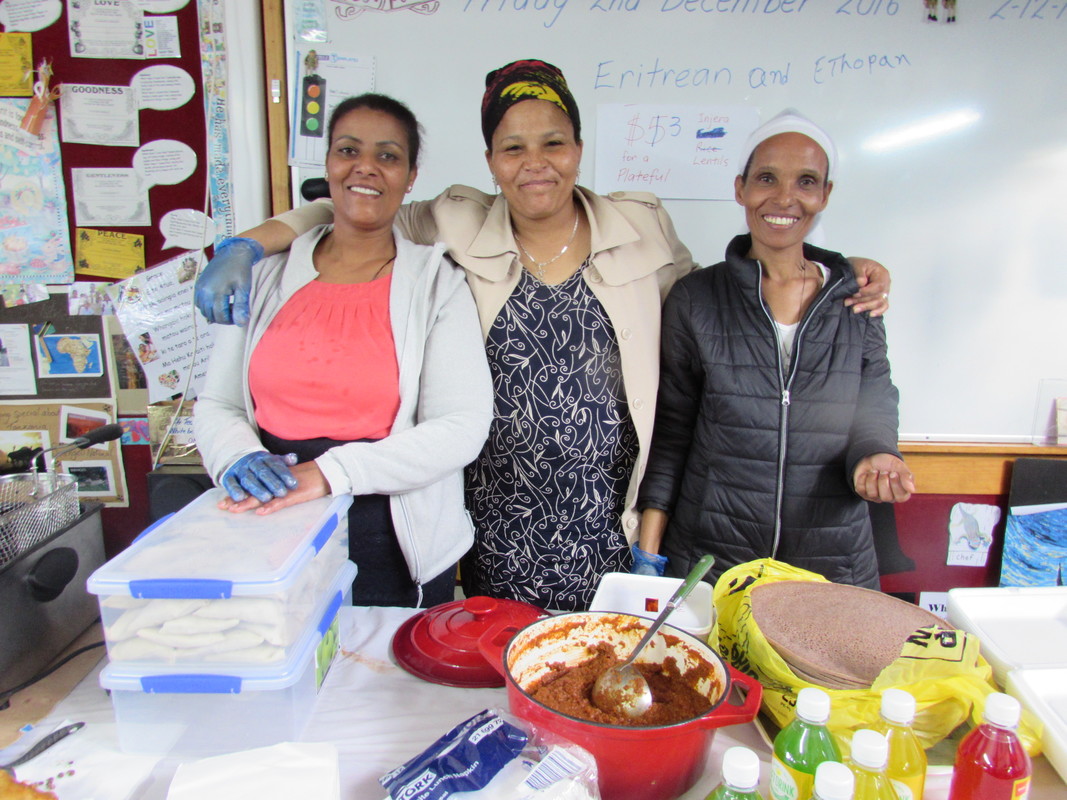
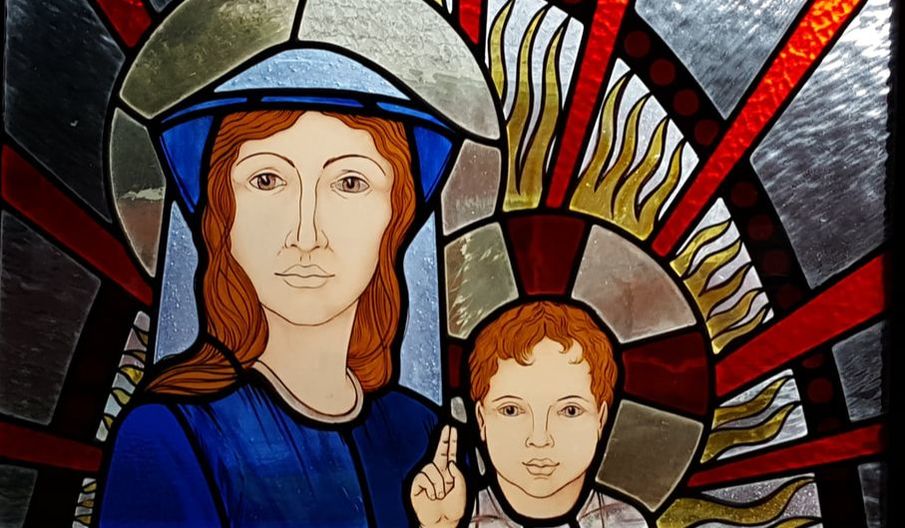
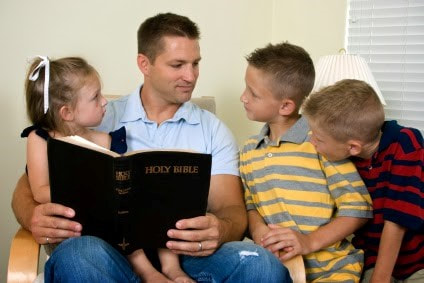

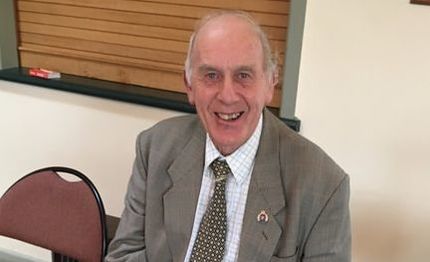
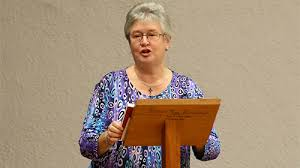
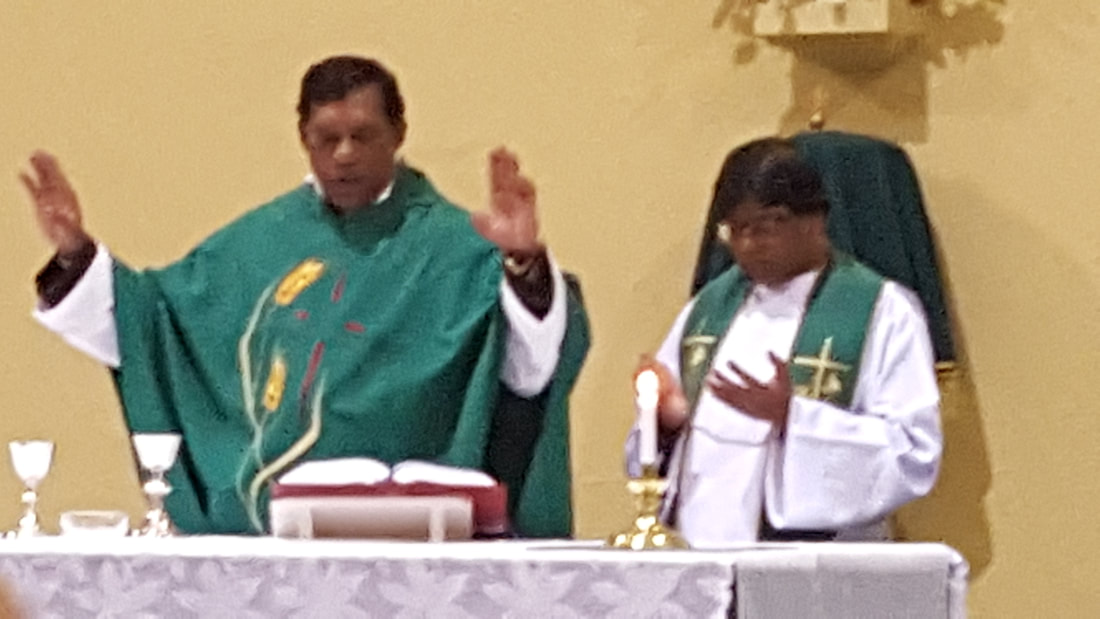
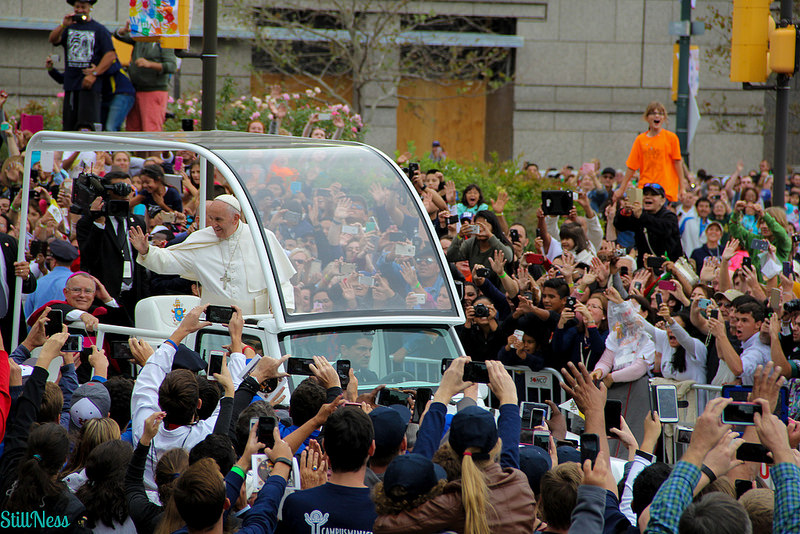
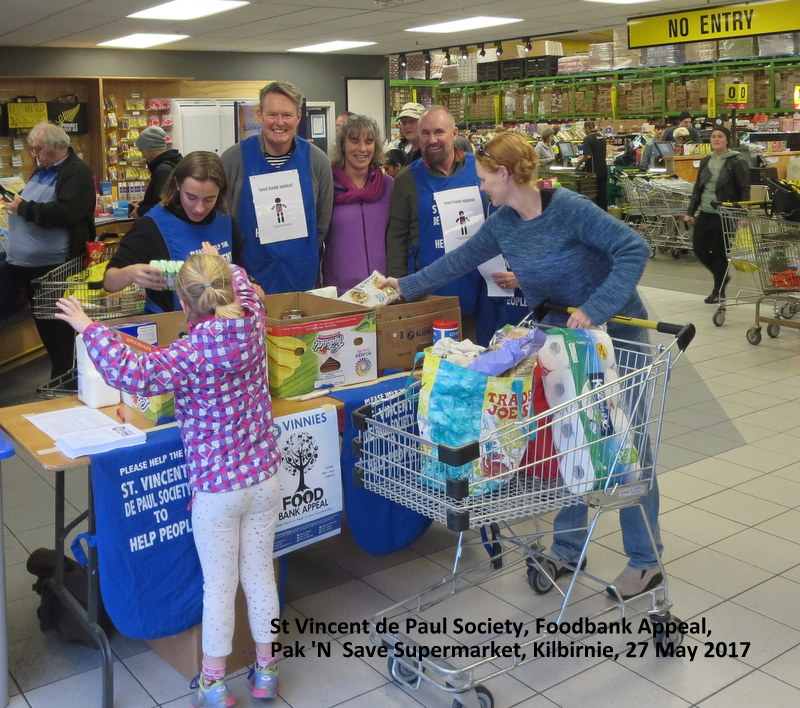
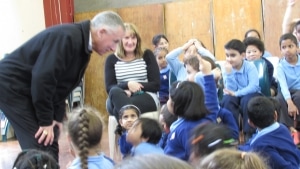
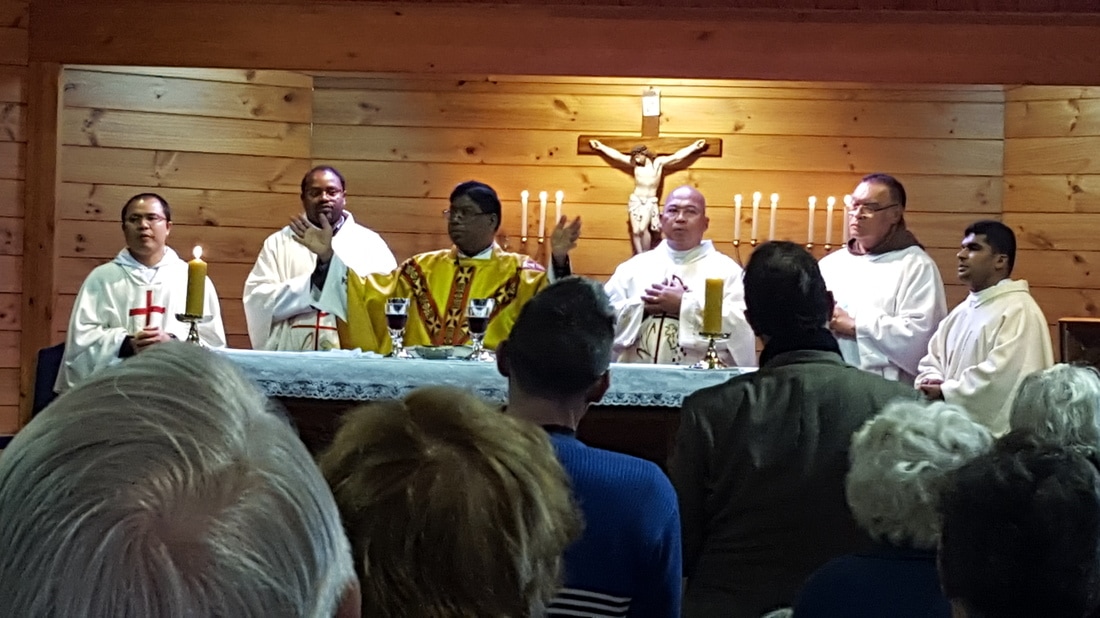

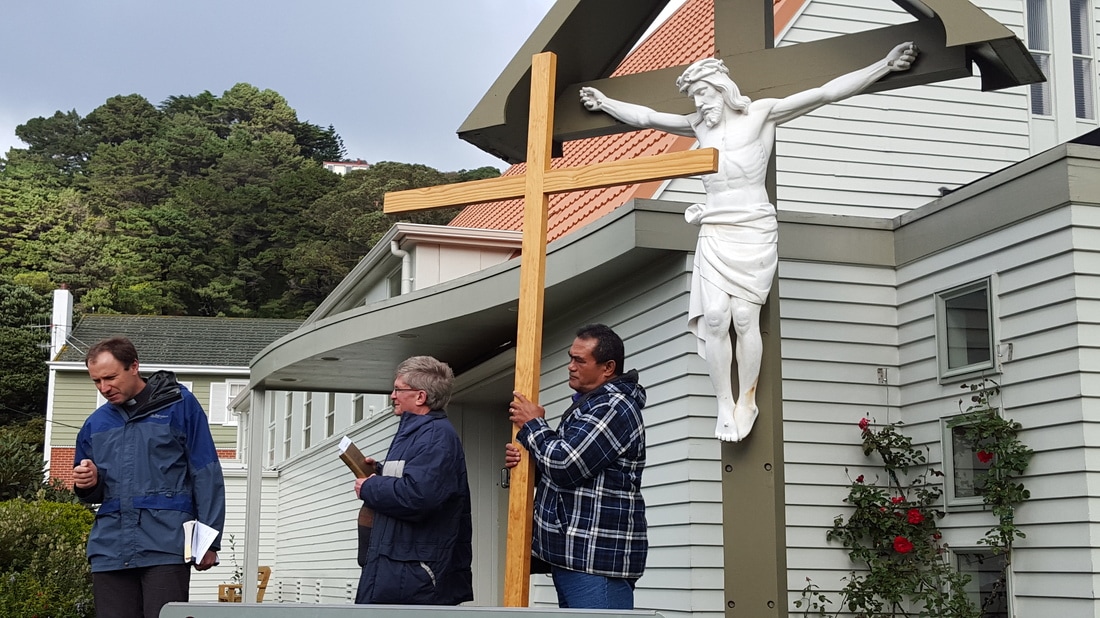
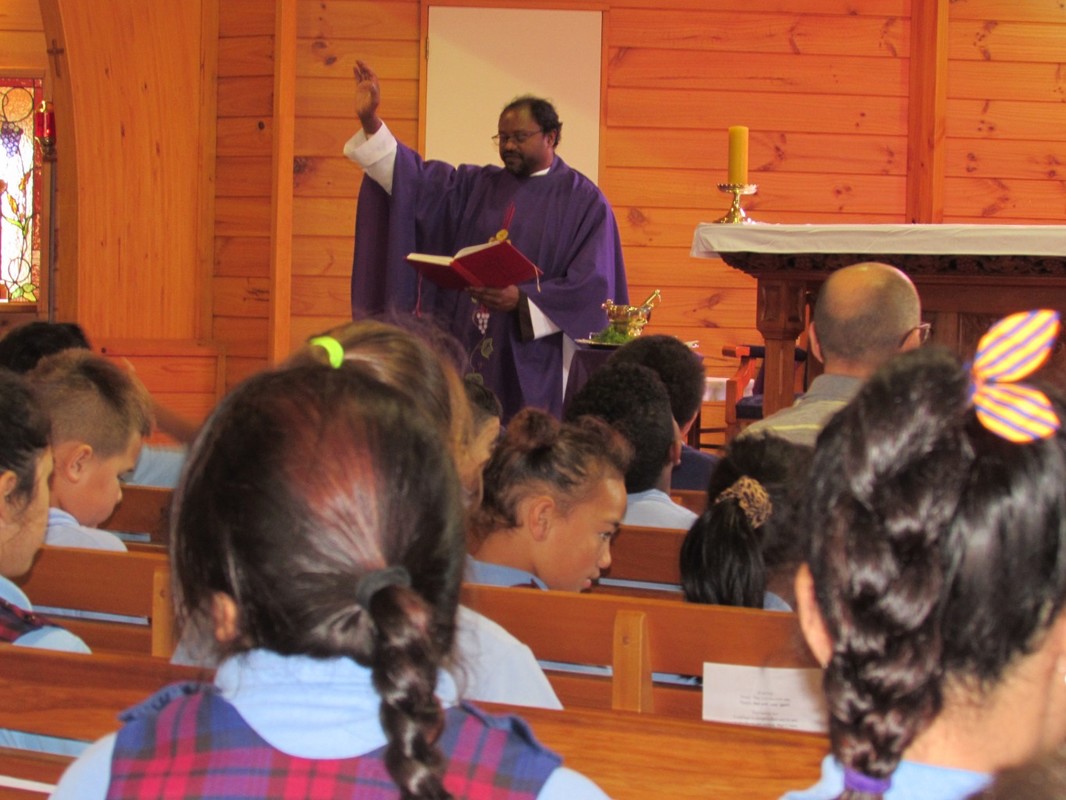
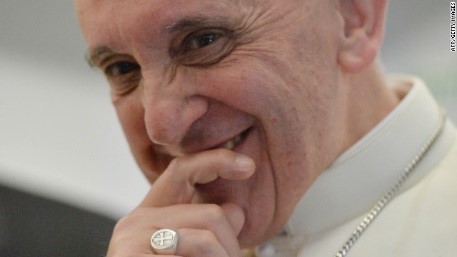
 RSS Feed
RSS Feed